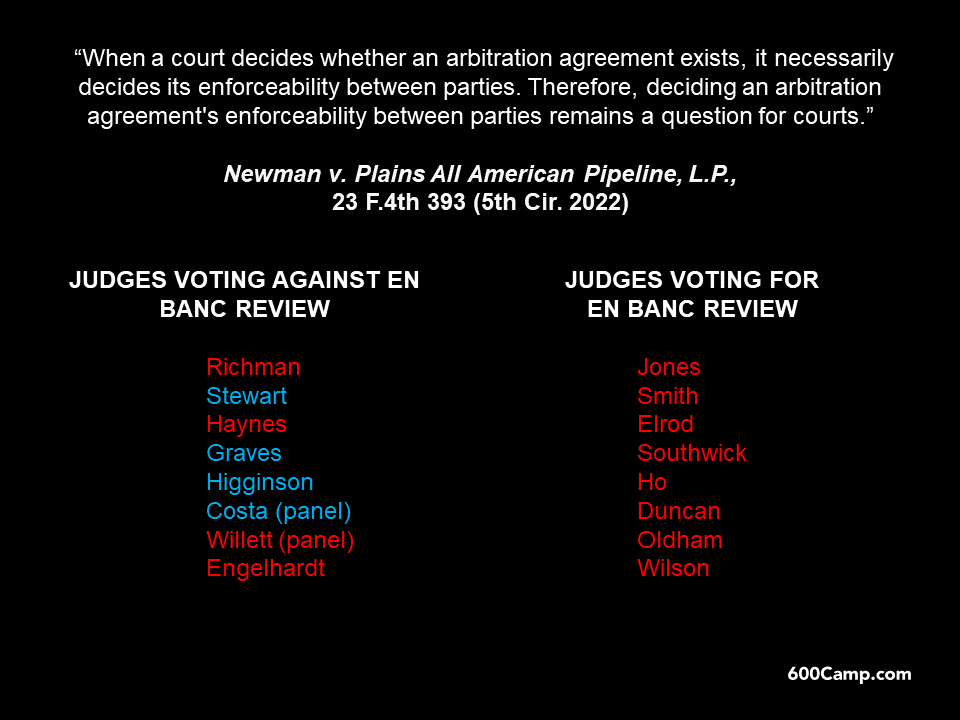Barnett v. American Express rejected a claim that arbitration was waived by substantially invoking the judicial process: “American Express did not substantially invoke the judicial process on Barnett’s FCRA claim by suing to collect her debt. Its previous suit brought only a generic breach of contract claim under Mississippi law. That is undoubtedly a different claim than Barnett’s subsequent FCRA action, which American Express immediately sought to arbitrate.” No. 24-60391 (July 29, 2025).
Category Archives: Arbitration
 Wheatfall v. HEB reminds, as to actions to confirm arbitration awards, that: “After [the 2022 Supreme Court opinion in Badgerow], Courts may not “look through” a Section 9 and 10 [Federal Arbitration Act] action to establish federal question jurisdiction based on the underlying dispute. Because Wheatfall’s complaint does not raise a federal question on its face, the district court lacked subject matter jurisdiction.”
Wheatfall v. HEB reminds, as to actions to confirm arbitration awards, that: “After [the 2022 Supreme Court opinion in Badgerow], Courts may not “look through” a Section 9 and 10 [Federal Arbitration Act] action to establish federal question jurisdiction based on the underlying dispute. Because Wheatfall’s complaint does not raise a federal question on its face, the district court lacked subject matter jurisdiction.”
The opinion drops an intriguing footnote: “Because Wheatfall filed a new action in state court rather than reinstating the original action in federal court, we decline to address the “jurisdictional anchor” theory of continuing jurisdiction,” citing authority from the Fourth and Seventh Circuits – a theory that the court in which an action is filed and arbitration is then ordered continues to have jurisdiction through confirmation. No. 24-20257 (June 18, 2025).
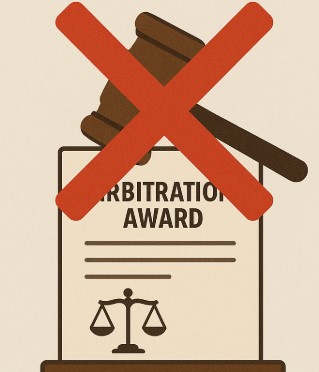 “Grafting ‘manifest disregard of the law’ as a basis for a losing party at arbitration to prevail under § 10(a)(4) would risk tension with Hall Street—and would run headlong into Oxford Health—by forcing us to conduct a less deferential review of a panel’s award than the FAA contemplates. Indeed, adopting [Appellant’s] reading essentially would rewrite the question a judge must ask from ‘whether the arbitrators construed the contract at all’ to ‘whether they construed it correctly.'” No. 24-10833 (Apr. 28, 2025).
“Grafting ‘manifest disregard of the law’ as a basis for a losing party at arbitration to prevail under § 10(a)(4) would risk tension with Hall Street—and would run headlong into Oxford Health—by forcing us to conduct a less deferential review of a panel’s award than the FAA contemplates. Indeed, adopting [Appellant’s] reading essentially would rewrite the question a judge must ask from ‘whether the arbitrators construed the contract at all’ to ‘whether they construed it correctly.'” No. 24-10833 (Apr. 28, 2025).
 In Baker Hughes Saudi Arabia Co. Ltd. v. Dynamic Indus., Inc., the Fifth Circuit addressed the issue of arbitrability under a subcontract for an oil-and-gas project in Saudi Arabia. It reversed the district court’s decision that denied a motion to compel arbitration, holding that the dissolution of the “DIFC-LCIA” (the arbitral authority specified in the agremeent) did not make the arbitration agreement unenforceable.
In Baker Hughes Saudi Arabia Co. Ltd. v. Dynamic Indus., Inc., the Fifth Circuit addressed the issue of arbitrability under a subcontract for an oil-and-gas project in Saudi Arabia. It reversed the district court’s decision that denied a motion to compel arbitration, holding that the dissolution of the “DIFC-LCIA” (the arbitral authority specified in the agremeent) did not make the arbitration agreement unenforceable.
The Court emphasized that the parties’ dominant purpose was to arbitrate disputes generally, rather than to arbitrate exclusively before the DIFC-LCIA, so “the forum-selection clause (if it is one) is not integral to the subcontract ….” The Court further clarified that even if the DIFC-LCIA was unavailable as a forum, the district court should have considered whether the DIFC-LCIA rules could be applied by another available forum. No. 23-30827 (Jan. 27, 2025).
 In RSM Prod. Corp. v. Gaz du Cameroun, S.A., the Fifth Circuit reversed the district court’s decision to vacate a revised arbitral award that reduced the damages awarded from $10.5 million to $6.5 million. The Court held that the arbitral tribunal had the authority to correct “computational errors” in its initial award and to determine what constituted such errors under the International Chamber of Commerce Rules, which the parties’ agreements incorporated. Applying the highly deferential standard of review for such issues, the Court held that the tribunal “arguably construed the parties’ contracts” when it issued the corrected award, even if it made a mistake in its interpretation.
In RSM Prod. Corp. v. Gaz du Cameroun, S.A., the Fifth Circuit reversed the district court’s decision to vacate a revised arbitral award that reduced the damages awarded from $10.5 million to $6.5 million. The Court held that the arbitral tribunal had the authority to correct “computational errors” in its initial award and to determine what constituted such errors under the International Chamber of Commerce Rules, which the parties’ agreements incorporated. Applying the highly deferential standard of review for such issues, the Court held that the tribunal “arguably construed the parties’ contracts” when it issued the corrected award, even if it made a mistake in its interpretation.
The Court rejected RSM’s argument that the tribunal exceeded its powers by reconsidering the merits of RSM’s claims. Distinguishing RSM’s authority, the Court noted that the ICC rules allowed this tribunal to correct any “clerical, computational or typographical error, or any errors of similar nature contained in [the] award.” The Court emphasized that “[t]he potential for … mistakes is the price of agreeing to arbitration” and that “[t]he arbitrator’s construction holds, however good, bad, or ugly.” No. 23-20583, Sept. 19, 2024.
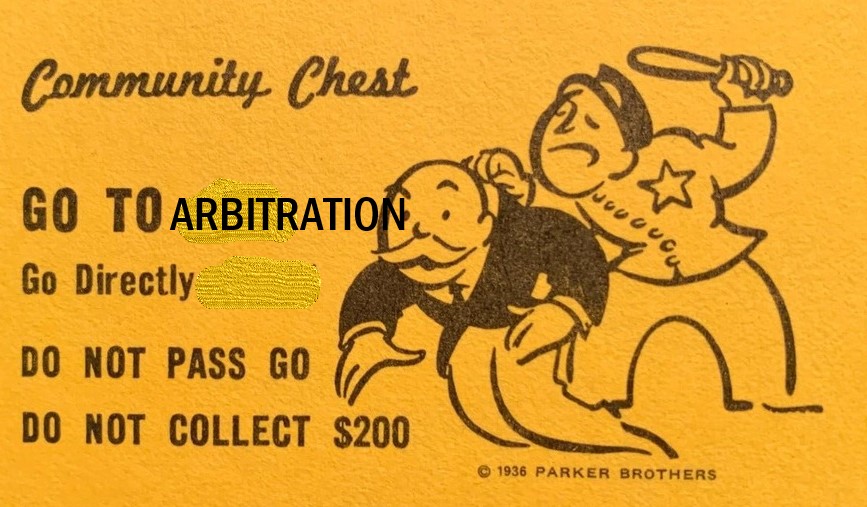 Cure & Assocs., P.C. v. LP Fin., LLC addreses whether nonsignatories to an arbitration agreement can be compelled to arbitrate under state-law equitable estoppel principles. The Fifth Circuit held that these nonsignatories could be compelled, because they received direct benefits from the contractual relationship between the two signatories. Specifically, the Court noted that one of the nonsignatories was formed specifically to facilitate one signatory’s business with the other, sharing clients, employees, and office space. Under both California and Texas law, a nonsignatory can be compelled to arbitrate if it “deliberately seeks and obtains substantial benefits from the contract” with an arbitration clause. No. 23-40519, Oct. 1, 2024.
Cure & Assocs., P.C. v. LP Fin., LLC addreses whether nonsignatories to an arbitration agreement can be compelled to arbitrate under state-law equitable estoppel principles. The Fifth Circuit held that these nonsignatories could be compelled, because they received direct benefits from the contractual relationship between the two signatories. Specifically, the Court noted that one of the nonsignatories was formed specifically to facilitate one signatory’s business with the other, sharing clients, employees, and office space. Under both California and Texas law, a nonsignatory can be compelled to arbitrate if it “deliberately seeks and obtains substantial benefits from the contract” with an arbitration clause. No. 23-40519, Oct. 1, 2024.
Applying the international convention about arbitration, the Fifth Circuit found an abuse of discretion in not compelling arbitration because of equitable estoppel, reasoning:
While Bufkin was certainly free to name and then dismiss the foreign insurers, the district court was not free to disregard them in considering the domestic insurers’ motion to compel arbitration. Yet in focusing on Bufkin’s dismissal of the foreign insurers, the district court neglected to consider the foreign insurers’ part in the seamless coverage agreement struck by the parties, and Bufkin’s interactions with the insurers. Honing in, that coverage arrangement included the arbitration clause that afforded the insurers–foreign and domestic—“predictability in resolving disputes dealing with the substantial risks presented by a surplus lines insurance policy.” … The upshot is that indulging Bufkin’s pleading-and-then-dismissing gamesmanship by denying arbitration turns on its head the axiom that “[t]he linchpin for equitable estoppel is equity—fairness.”
Bufkin Enterprises, LLC v. Indian Harbor Ins. Co., No. 23-30171 (March 4, 2024) (emphasis added).
 Michael Cloud, a former NFL running back, sued the NFL’s retirement fund for additional disability benefits. The Fifth Circuit reversed a trial-court ruling in his favor, noting the one-sided nature of the plan’s operations, but concluding:
Michael Cloud, a former NFL running back, sued the NFL’s retirement fund for additional disability benefits. The Fifth Circuit reversed a trial-court ruling in his favor, noting the one-sided nature of the plan’s operations, but concluding:
Cloud’s claim fails because he did not and cannot show any changed circumstances entitling him to reclassification to the highest tier of benefits. He could have appealed the 2014 denial of reclassification to Active Football status—but he did not do so. Instead, Cloud filed another claim for reclassification in 2016, which subjected him to a changed-circumstances requirement that he cannot meet—and did not try to meet. He therefore forfeited the issue at the administrative level and at any rate has not pointed to any clear and convincing evidence supporting his claim.
The district court’s findings about the NFL Plan’s disregard of players’ rights under ERISA and the Plan are disturbing. Again, this is a Plan jointly managed by the league and the players’ union. And we commend the trial court judge for her diligent work chronicling a lopsided system aggressively stacked against disabled players. But we also must enforce the Plan’s terms in accordance with the law.
Cloud v. Bell-Rozelle NFL Player Retirement Plan, No. 22-10710 (revised March 17, 2024).
 An explosion on the M/V FLAMINIA (right) led to a $200 million arbitration award, which in turn led to an action to confirm that award in New Orleans federal court. The Fifth Circuit reversed for a lack of personal jurisdiction, concluding:
An explosion on the M/V FLAMINIA (right) led to a $200 million arbitration award, which in turn led to an action to confirm that award in New Orleans federal court. The Fifth Circuit reversed for a lack of personal jurisdiction, concluding:
- Forum. “When assessing personal jurisdiction in a confirmation action under the New York Convention, a Convention, a federal court should consider contacts related to the parties’ underlying dispute and not only contacts related to the arbitration proceeding itself. That holding aligns our court with every other circuit to address this issue.”
- Waiver. Unlike the facts of an earlier case involving a “letter of understanding,” the defendant’s LOU in tihs case said that it was “given without prejudice to any and all rights or defenses MSC, its agents or affiliates have or may have in the Proceedings.”
- Contacts. “[T]he dispute’s sole contact with the forum—the DVB’s shipping from the Port of New Orleans—did not occur as a result of MSC’s ‘own choice.’ … [The fact that the DVB was loaded onto the FLAMINIA in New Orleans was the result of “the unilateral activity” of other parties, not MSC.” (citations omitted).
No. 22-30808 (Jan. 29, 2024).
The arbitration award in Amberson v. McAllen said:
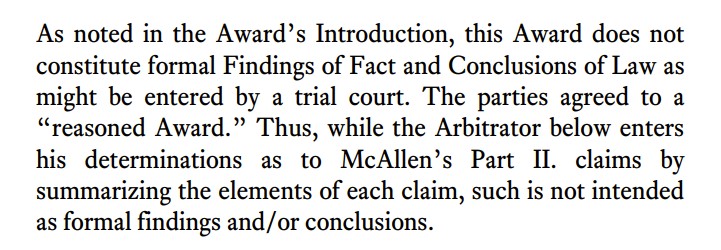 along with some additional explanation of the difference between a “reasoned award” and “Findings of Fact and Conclusions of Law.” The Fifth Circuit rejected the argument that the arbitrator’s drawing of this distinction kept the award from having collateral-estoppel effect. No. 22-50788 (July 12, 2023).
along with some additional explanation of the difference between a “reasoned award” and “Findings of Fact and Conclusions of Law.” The Fifth Circuit rejected the argument that the arbitrator’s drawing of this distinction kept the award from having collateral-estoppel effect. No. 22-50788 (July 12, 2023).
 Dream Medical Group v. Old South Trading Co. reminds how hard it is to challenge the merits of an arbitration award.
Dream Medical Group v. Old South Trading Co. reminds how hard it is to challenge the merits of an arbitration award.
Dream Medical bought medical face masks from Old South. They had a contract dispute that went to arbitration with the AAA. Dream Medical won and Old South opposed confirmation.
Among other arguments, Old South complained that its fraudulent-inducement claim was mishandled, in that the panel violated a AAA rule by not fully considering Old South’s fraudulent-inducement claim, and thus came within the FAA’s provision about arbitrators who “exceeded their powers.”
The Fifth Circuit rejected that argument as an invitation for us to reasses the merits of the Panel’s decision.” It also noted that “manifest disregard of the law” is not a viable, nonstatutory basis for opposing confirmation under Fifth Circuit precedent. No. 22-20286 (March 6, 2023) (unpublished).
Addressing a basic but delicate issue about franchise law, the Fifth Circuit stated its test for enforcement of an arbitration agreement based on “close relationship” principles in Franlink Inc. v. BACE Servcs., Inc.:
Borrowing from the precedents, including the Third and Seventh Circuits, we extract a few fundamental factors applicable here that we will consider in determining whether these nonsignatories are closely related: (1) common ownership between the signatory and the non-signatory, (2) direct benefits obtained from the contract at issue, (3) knowledge of the agreement generally and (4) awareness of the forum selection clause particularly. Of course, the closely-related doctrine is context specific and is determined only after weighing the significance of the facts relevant to the particular case at hand.
No. 21-20316 (Sept. 28, 2022) (citations omitted, emphasis added).
The well-known poem Antigonish begins:
Yesterday, upon the stair,
I met a man who wasn’t there
He wasn’t there again today
I wish, I wish he’d go away.
In that general spirit, in recent days, both the U.S. Court of Appeals for the Fifth Circuit and the Court of Appeals for the Fifth District at Dallas had close en banc votes involving questions of arbitrability, as to a party who “wasn’t there”–who had not signed an arbitration agreement, but was nevertheless potentially subject to it. (The Dallas case is discussed here; the Fifth Circuit’s, here.)
Whether the timing is an example of synchronicity I will leave to others. The courts’ difficulty with these issues shows the strong feelings provoked by the issue of court access, even among very sophisticated jurists, in an area of the law with well-developed case law on many key points.
 By an 8-8 vote over a dissent, the full Fifth Circuit declined to review Newman v. Plains All Am. Pipeline, L.P., a case about a court’s power to determine arbitrability when a nonsignatory seeks to enforce an arbitration clause. The breakdown of votes was as follows (Senior Judge King was the third panel member):
By an 8-8 vote over a dissent, the full Fifth Circuit declined to review Newman v. Plains All Am. Pipeline, L.P., a case about a court’s power to determine arbitrability when a nonsignatory seeks to enforce an arbitration clause. The breakdown of votes was as follows (Senior Judge King was the third panel member):
 Preble-Rich, a Haitian company, had a contract with a Haitian government agency to deliver fuel. A payment dispute developed and Preble-Rich started an arbitration in New York, pursuant to a broad clause in the parties’ contract (“In the event of a dispute between the [Parties] under this Contract, the dispute shall be submitted by either party to arbitration in New York. … The decision of the arbitrators shall be final, conclusive and binding on all Parties. Judgment upon such award may be entered in any court of competent jurisdiction.”).
Preble-Rich, a Haitian company, had a contract with a Haitian government agency to deliver fuel. A payment dispute developed and Preble-Rich started an arbitration in New York, pursuant to a broad clause in the parties’ contract (“In the event of a dispute between the [Parties] under this Contract, the dispute shall be submitted by either party to arbitration in New York. … The decision of the arbitrators shall be final, conclusive and binding on all Parties. Judgment upon such award may be entered in any court of competent jurisdiction.”).
Preble-Rich obtained “a partial final award of security” from the arbitration panel requiring the posting of $23 million in security. Litigation to enforce that award led to Preble-Rish Haiti, S.A. v. Republic of Haiti, No. 22-20221, which held that the above clause was not an explicit waiver of immunity from attachment as required by the Foreign Sovereign Immunity Act, 28 U.S.C. § 1610(d). “The arbitration clause is relevant to whether BMPAD waived its sovereign immunity from suit generally, but a waiver of immunity from suit has ‘no bearing upon the question of immunity from prejudgment attachment.’” (citation omitted).
 Important arbitration-waiver case today from SCOTUS:
Important arbitration-waiver case today from SCOTUS:
“Most Courts of Appeals have answered that question by applying a rule of waiver specific to the arbitration context. Usually, a federal court deciding whether a litigant has waived a right does not ask if its actions caused harm. But when the right concerns arbitration, courts have held, a finding of harm is essential: A party can waive its arbitration right by litigating only when its conduct has prejudiced the other side. That special rule, the courts say, derives from the FAA’s ‘policy favoring arbitration.’ We granted certiorari to decide whether the FAA authorizes federal courts to create such an arbitration-specific procedural rule. We hold it does not.”
Morgan v. Sundance Inc., No. 21-328 (May 23, 2022).
 Badgerow v. Walters recently returned to the Fifth Circuit after the Supreme Court’s clarification that a “‘look-through’ approach to determining federal jurisdiction does not apply to requests to confirm or vacate arbitral awards under Sections 9 and 10 of the FAA.” No. 19-30766 (May 11, 2022).
Badgerow v. Walters recently returned to the Fifth Circuit after the Supreme Court’s clarification that a “‘look-through’ approach to determining federal jurisdiction does not apply to requests to confirm or vacate arbitral awards under Sections 9 and 10 of the FAA.” No. 19-30766 (May 11, 2022).
The Urban Dictionary associates the phrase “been had” with the buyer of an unintendedly green ring. The Fifth Circuit associates the phrase with the “buyer” of a JAMS arbitration:
Here the parties’ arbitration agreements called for arbitration pursuant to JAMS Comprehensive Arbitration Rules and Procedures, which included the right of JAMS to terminate the arbitration proceedings for nonpayment of fees by any party. Exercising this right, JAMS terminated the arbitration proceeding following the Fund’s nonpayment. Following the lead of our sister circuits, we conclude that arbitration ‘has been had.’ Even though the arbitration did not reach the final merits and was instead terminated because of a party’s failure to pay its JAMS fees, the parties still exercised their contractual right to arbitrate prior to judicial resolution in accordance with the terms of their agreements.
Noble Capital Fund Mgmnt. LLC v. US Capital, No. 21-50609 (April 13, 2022) (footnotes omitted) (emphasis added).
“To be sure, the order on appeal is the district court’s order denying Doe’s motion to re-open the case and sever the cost-splitting provision of the arbitration agreement—not its order compelling arbitration. But that makes no difference for our purposes. As both parties acknowledge, Doe’s motion to re-open and sever was, in effect, nothing more than a motion to reconsider the merits of part of the district court’s order compelling arbitration. And we have no more jurisdiction to review an order declining to reconsider an order compelling arbitration than we do to review the order compelling arbitration itself.” Doe v. Tonti Mgmnt. Co., No. 21-30295 (Jan. 31, 2022).
In Newman v. Cypress Env. Mgmnt.:
- Newman, a pipeline inspector, had an Employment Agreement with Cypress, a business that supplied pipeline inspectors for client projects, and that agreement had an arbitration clause;
- A Cypress affiliate entered a contract to supply services to Plains, a pipeline company
- Newman brought an FLSA action against Plains for unpaid overtime, and Plains sought to compel arbitration, citing the provision of the Newman-Cypress contract.
The Fifth Circuit held that Plains was not a third-party beneficiary of that contract and could not enforce it, noting: “First, Newman’s incorporated-by-reference Pay Letter [between the Cypress affiliate and Plains] did not clearly and fully spell out that Plains could take legal action if either Newman or Cypress breached its terms. To the extent that it named Plains at all, the Pay Letter merely list ‘Plains-Pipeline’ as the ‘Client.’ … [and] Second, the Employment Agreement itself did not clearly and fully spell out that Plains could take legal action if Newman decided to breach its other terms.” No. 21-5023 (Jan. 7, 2022) (emphasis in original).
“Federal courts can enforce an arbitration agreement only if they could hear the underlying ‘controversy between the parties.’ 9 U.S.C. § 4. In Vaden v. Discover Bank, 556 U.S. 49 (2009), the court told us to define that ‘controversy’ by looking to the whole dispute, including any state-court pleadings.” ADT, LLC v. Richmond, No. 21-10023 (Nov. 10, 2021).
ADT presented the question whether that technique for definition also applies to the parties in the case–a material issue in that case, because federal diversity jurisdiction over the arbitration suit depended on how the court treated nondiverse parties in the underlying state-court lawsuit.
The Fifth Circuit concluded that Vaden did not apply,, based on the plain language of section 4: “Having agreed to arbitrate its claims against a diverse defendant, a plaintiff may not escape our power by joining to its state-court suit nondiverse persons whom it could not hale into arbitration. ‘Parties,’ in § 4, means the parties to the § 4 suit–not everyone against whom one party claims relief.” (emphasis added).
In Gezu v. Charter Communications, “the record show[ed] a valid modification to [plaintiff’s] employment contract–i.e., notice and acceptance,” when:
- Notice. “On October 6, 2017, Charter sent an email notice to Gezu of its new Program aimed at ‘efficiently resolv[ing] covered employment-related legal disputes through binding arbitration.’ … The email stated that by participating, the recipient and Charter ‘both waive[d] the right to initiate or participate in court litigation … involving a covered claim’ and that recipients ‘would be automatically enrolled in the Program unless they chose to ‘opt out of participating … within … 30 days.’ This language, along with the referenced links to additional information about the Program provided in the email, was sufficient to notify Gezu unequivocally of the arbitration agreement.” (emphasis added); and
- Acceptance. “The October 6, 2017 email ‘conspicuously warned that employees were deemed to accept’ the Program unless they opted out within 30 days. In re Dillard Dep’t Stores, Inc., 198 S.W.3d 778, 780 (Tex. 2006). The email also provided recipients with directions on how to opt out. Nonetheless, Gezu did not opt out of the Program and continued working for Charter for over a year until he was terminated in May 2019.”
No. 21-10198 (Nov. 2, 2021).
 Forby v. One Technologies presented the unusual situation of an arbitration waiver by the defendant, followed by an arbitration waiver the plaintiff as to a newly asserted claim: “We again address a class action claiming that One Technologies, L.P. (“One Tech”), duped consumers into signing up for ‘free’ credit reports that were not really free. The last time around, we ruled One Tech waived its right to arbitrate the plaintiffs’ state-law claims. Forby v. One Technologies., 909 F.3d 780 (5th Cir. 2018) [hereinafter Forby I]. Now, we consider whether One Tech also waived its right to arbitrate federal claims added after remand. Adhering to our precedent that waivers of arbitral rights are evaluated on a claim-by-claim basis, see Subway Equip. Leasing Corp. v. Forte, 169 F.3d 324, 328 (5th Cir. 1999), we hold that One Tech did not waive its right to arbitrate the new federal claims.” No. 20-10088 (Sept. 14, 2021) (citing, inter alia, Collado v. J&G Transp., Inc., 820 F.3d 1256 (11th Cir. 2016)).
Forby v. One Technologies presented the unusual situation of an arbitration waiver by the defendant, followed by an arbitration waiver the plaintiff as to a newly asserted claim: “We again address a class action claiming that One Technologies, L.P. (“One Tech”), duped consumers into signing up for ‘free’ credit reports that were not really free. The last time around, we ruled One Tech waived its right to arbitrate the plaintiffs’ state-law claims. Forby v. One Technologies., 909 F.3d 780 (5th Cir. 2018) [hereinafter Forby I]. Now, we consider whether One Tech also waived its right to arbitrate federal claims added after remand. Adhering to our precedent that waivers of arbitral rights are evaluated on a claim-by-claim basis, see Subway Equip. Leasing Corp. v. Forte, 169 F.3d 324, 328 (5th Cir. 1999), we hold that One Tech did not waive its right to arbitrate the new federal claims.” No. 20-10088 (Sept. 14, 2021) (citing, inter alia, Collado v. J&G Transp., Inc., 820 F.3d 1256 (11th Cir. 2016)).
 The defendant in IMA, Inc. v. Medical City Dallas sought to compel arbitration under a “direct-benefits estoppel” theory. It argued that the plaintiff’s claim, which involved a series of related contracts, necessarily implicated an agreement that contained an arbitration clause. The Fifth Circuit affirmed the denial of its motion to compel arbitration, agreeing that the defendant lacked “knowledge of the contract’s ‘basic terms,’ and noting: “IMA neither was shown to have, nor needed, knowledge of the Hospital Agreement in order to fulfill its obligations to the Health Plan and the IMAPPOplus Agreement; rather IMA could process the claims with ‘a copy of the [Health] Plan and the PPO Contract Rates.'” No. 20-20032 (June 17, 2021).
The defendant in IMA, Inc. v. Medical City Dallas sought to compel arbitration under a “direct-benefits estoppel” theory. It argued that the plaintiff’s claim, which involved a series of related contracts, necessarily implicated an agreement that contained an arbitration clause. The Fifth Circuit affirmed the denial of its motion to compel arbitration, agreeing that the defendant lacked “knowledge of the contract’s ‘basic terms,’ and noting: “IMA neither was shown to have, nor needed, knowledge of the Hospital Agreement in order to fulfill its obligations to the Health Plan and the IMAPPOplus Agreement; rather IMA could process the claims with ‘a copy of the [Health] Plan and the PPO Contract Rates.'” No. 20-20032 (June 17, 2021).
A party in Int’l Energy Ventures Mgmnt, LLC v. United Energy Group, Ltd. “recognize[d] the general proposition that litigation-conduct waiver is an issue that should be decided by the court,” but “contend[ed] that the general rule does not apply here for three reasons.” The Fifth Circuit rejected each one:
- Incorporation of AAA rules. Yes, the parties’ agreement gave the arbitrator “the power to rule on its own jurisdiction,” but it did not “clearly and unmistakably” confer the power to decided litigation-conduct waiver.
- Waiver. Again, the Court found that activity during the arbitration did not “clearly and unmistakably” result in the “submission” of this issue, noting reservations made by the relevant party and the arbitrator’s own actions.
- “Unique facts.” The Court did not find key cases inapplicable because of the party who sought arbitration: “‘Arbitration is a matter of contract,'” reasoned the Court, and “[e]xtra-contractual factors–like where an issue first arises and who initiates arbitration–are not part of the interpretive analysis.”
No. 20-20221 (May 28, 2021).
 In an arbitrability dispute, the Fifth Circuit reviewed the basis for federal jurisdiction, noting: “[Vaden v. Discover Bank, 556 U.S. 49 (2009)] then went on to point out a wrinkle. ‘As for jurisdiction over controversies touching arbitration, however, the [Federal Arbitration] Act is something of an anomaly in the realm of federal legislation: It bestows no federal jurisdiction but rather requires for access to a federal forum an independent jurisdictional basis over the parties’ dispute.'” Applied to the case at hand: “Under that “look through” analysis, we hold that this underlying dispute presents a federal question. Polyflow’s arbitration demand included at least three federal statutory claims under the Lanham Act …. What matters is that a federal question—the Lanham Act claims—animated the underlying dispute, not whether Polyflow listed them in its original complaint.” Polyflow LLC v. Specialty RTP LLC, No. 20-20416 (March 30, 2021).
In an arbitrability dispute, the Fifth Circuit reviewed the basis for federal jurisdiction, noting: “[Vaden v. Discover Bank, 556 U.S. 49 (2009)] then went on to point out a wrinkle. ‘As for jurisdiction over controversies touching arbitration, however, the [Federal Arbitration] Act is something of an anomaly in the realm of federal legislation: It bestows no federal jurisdiction but rather requires for access to a federal forum an independent jurisdictional basis over the parties’ dispute.'” Applied to the case at hand: “Under that “look through” analysis, we hold that this underlying dispute presents a federal question. Polyflow’s arbitration demand included at least three federal statutory claims under the Lanham Act …. What matters is that a federal question—the Lanham Act claims—animated the underlying dispute, not whether Polyflow listed them in its original complaint.” Polyflow LLC v. Specialty RTP LLC, No. 20-20416 (March 30, 2021).
 The question whether “manifest disregard of the law” allows a court to vacate an arbitration award lingered in the case law since Hall Street Assocs. v. Mattel, Inc., 552 U.S. 576 (2008), which held that an arbitration agreement cannot create a ground for vacatur or modification beyond those set out in the FAA.
The question whether “manifest disregard of the law” allows a court to vacate an arbitration award lingered in the case law since Hall Street Assocs. v. Mattel, Inc., 552 U.S. 576 (2008), which held that an arbitration agreement cannot create a ground for vacatur or modification beyond those set out in the FAA.
Jones v. Michaels Stores provided “an opportunity to resolve at least one thing that we have directly resolved [about Hall Street]: ‘manifest disregard of the law as an independent, nonstatutory ground for setting aside an award must be abandoned and rejected.” No. 20-30428 (March 15, 2021) (quoting Citigroup Global Markets, Inc. v. Bacon, 562 F.3d 349, 358 (5th Cir. 2009)).
But what of McKool Smith, P.C. v. Curtis Int’l, Ltd., 650 F. App’x 208 (5th Cir. 2016) (per curiam)? Jones clarified that McKool Smith was a case “in which a party argued that an arbitrator’s manifest disregard of the law showed that he had ‘exceeded [his] powers within the meaning of 9 U.S.C. § 10(a)(4).” In that case, “[b]eecause of uncertainty about whether the manifest-disregard standard could still be used as a means of establishing one of the statutory factors, McKool Smith assumed arguendo that it could because the standard was not met in any event.” In this case, however, “[a]s Jones does not invoke any statutory ground for vacatur, Citigroup Global was dispositive of Jones’s challenge to the arbitration award.
The Fifth Circuit reversed on an issue about arbitrator disclosure, observing, inter alia: “OOGC hypothesizes that these possible, incidental harms to FTS flowing from a unanimous arbitration panel ruling would make [the arbitrator] think that he needed to rule in FTS’s favor or else it would take him personally to task by declining to retain him in future matters. This is simply too much conjecture. Accepting OOGC’s argument would create an ‘incentive to conduct intensive, after-the-fact investigations to discover the most trivial of relationships,’ undercutting the purpose of arbitration ‘as an
efficient and cost-effective alternative to litigation.'” OOGC America v. Chesapeake Exploration, No. 19-20002 (Sept. 14, 2020).
 A dispute about an allegedly malfunctioning power generator led to an ingenious but flawed attempt to resolve it in Imperial Indus. Supply Co. v.. Thomas, in two steps:
A dispute about an allegedly malfunctioning power generator led to an ingenious but flawed attempt to resolve it in Imperial Indus. Supply Co. v.. Thomas, in two steps:
- “[Thomas] began by sending Imperial a document titled “ConditionalAcceptance for the Value/For Proof of Claim/Agreement” (“Alleged Agreement”) which purported to be a “binding self-executing irrevocable contractual agreement” evidencing Thomas’s acceptance of Imperial’s offer. , , , The Alleged Agreement further provided that Imperial would need to propound fifteen different “Proofs of Claim” to Thomas in order to avoid (1) breaching the Alleged Agreement; (2) admitting, by “tacit acquiescence,” that the generator caused the fire; and (3) participating in arbitration proceedings.”
- “Then, Thomas sent Imperial two notices related to the Alleged Agreement. The first notice purported that Imperial breached the Alleged Agreement by failing to provide the proofs of claim. This notice allowed Imperial to cure the alleged breach by providing the proofs of claim within three days. In addition, the notice stated that Imperial’s refusal to follow the curing mechanism would result in Imperial’s admission and confessed judgment to the alleged breach. The second notice stated that Imperial owed the balance for the “entire contract value”1 because it did not cure the breach.”
Thomas than obtained a favorable arbitration award against Imperial. Unimpressed, the Fifth Circuit affirmed the district court’s order that vacated the award, noting: “If Thomas’s argument was valid, it would turn the notion of mutual assent on its head in ordinary purchase cases like this one: buy an item from a dealer or manufacturer, then mail a letter saying “you agree if you don’t object,” and you can have whatever deal you want if the dealer/manufacturer doesn’t respond. Thomas fails to cite a single case that would support such a ridiculous notion.” No. 20-60121 (Sept. 2, 2020).
 The parties’ arbitration agreement adopted certain AAA rules; among them, Rule 52(e) says: “Parties to an arbitration under these rules may not call the arbitrator . . . as a witness in litigation or any other proceeding relating to the arbitration” and that an arbitrator is “not competent to testify as [a] witness[] in such proceeding.”
The parties’ arbitration agreement adopted certain AAA rules; among them, Rule 52(e) says: “Parties to an arbitration under these rules may not call the arbitrator . . . as a witness in litigation or any other proceeding relating to the arbitration” and that an arbitrator is “not competent to testify as [a] witness[] in such proceeding.”
The appellant in Vantage Deepwater Co. v. Petrobras, facing an award of close to $700 million, sought the deposition of the dissenter on a 3-judge panel, noting his unusual statement that “the entire arbitration, ‘the prehearing, hearing, and posthearing processes,’ denied Petrobras ‘fundamental fairness and due process protections.'”
The Fifth Circuit held otherwise: “We have not discovered any court of appeals decision holding that a district court abused its discretion in denying discovery from an arbitrator about the substance of the award. We see nothing in this record to cause us to be the first.” No. 19-20435 (July 16, 2020).
 O’Shaughnessy v. Young Living Essential Oils presents the classic contract-law problem of an agreement contained in more than one document; here, it led to the Fifth Circuit rejecting the defendant’s effort to compel arbitration. O’Shaughnessey’s “Member Agreement” with Young Living had three salient features:
O’Shaughnessy v. Young Living Essential Oils presents the classic contract-law problem of an agreement contained in more than one document; here, it led to the Fifth Circuit rejecting the defendant’s effort to compel arbitration. O’Shaughnessey’s “Member Agreement” with Young Living had three salient features:
- A “Jurisdiction and Choice of Law” clause – “The Agreement will be interpreted and construed in accordance with the laws of the State of Utah applicable to contracts to be performed therein. Any legal action concerning the Agreement will be brought in the state and federal courts located in Salt Lake City, Utah.”
- A merger clause – “The Agreement constitutes the entire agreement between you and Young Living and supersedes all prior agreements; and no other promises,
representations, guarantees, or agreements of any kind will be valid unless in writing and signed by both parties.” - And it incorporated by reference a “Policies and Procedures” document.
The Policies and Procedures, in turn, had an arbitration clause with a carve-out for certain kinds of injunctive relief. The Court held: “The arbitration clause’s exemption of certain litigatory rights from its purview does not cure its inherent conflict with the Jurisdiction and Choice of Law provision. The two provisions irreconcilably conflict and for this reason, we agree that there was no ‘meeting of the minds’ with respect to arbitration in this case.” No. 19-51169 (April 28, 2020). (The above picture, BTW, is Mary Astor playing Brigid O’Shaughnessey in 1941’s The Maltese Falcon.)
 After recently addressing a party’s rights to oral argument in a dispute about enforcement of an arbitration award, the Fifth Circuit then returned to Sun Coast Resources v. Conrad to review the prevailing party’s motion for sanctions under Fed. R. App. 38 for a frivolous appeal.The Court observed:
After recently addressing a party’s rights to oral argument in a dispute about enforcement of an arbitration award, the Fifth Circuit then returned to Sun Coast Resources v. Conrad to review the prevailing party’s motion for sanctions under Fed. R. App. 38 for a frivolous appeal.The Court observed:
“[T]he case for Rule 38 sanctions is strongest in matters involving malice, not incompetence. And our decision on Sun Coast’s appeal was careful not to assume the former. As to the merits of its appeal—including the company’s
failure to disclose that it cited Opalinski II rather than Opalinski I to the arbitrator—we observed that ‘[t]he best that may be said for Sun Coast is that it badly misreads the record.’ As to its demand for oral argument, we stated that ‘Sun Coast’s motion misunderstands the federal appellate process in more ways than one.’
Perhaps Sun Coast earnestly (if mistakenly) believed it had a valid legal claim to press. Or perhaps it was bad faith—maximizing legal expense to drive a less-resourced adversary to drop the case or settle for less. Or perhaps its decisions were driven by counsel. But we must resolve the pending motion based on facts and evidence—not speculation. We sympathize with Conrad . . . [b]ut we conclude that this is a time for grace, not punishment.”
No. 19-20058 (May 7, 2020) (citations omitted).
While the timing is coincidental, the case is an instructive companion to the Texas Supreme Court’s recent opinion in Brewer v. Lennox Hearth Products LLC, which reversed a sanctions award. That Court noted that “while the absence of authoritative guidance is not a license to act with impunity, bad faith is required to impose sanctions under the court’s inherent authority,” and this held that “the sanctions order in this case cannot stand because evidence of bad faith is lacking.” No. 18-0426 (Tex. April 24, 2020) (footnotes omitted).
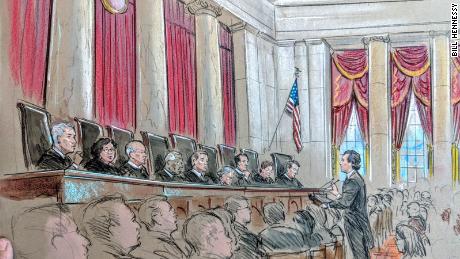 Sun Coast Resources Inc. v. Conrad, No. 19-20058 (April 16, 2020), involved a challenge to an arbitration award. The challenging party did not agree with the Fifth Circuit’s decision to proceed without oral argument, and filed a motion seeking an oral argument. It was denied and the Court’s explanation is instructive:
Sun Coast Resources Inc. v. Conrad, No. 19-20058 (April 16, 2020), involved a challenge to an arbitration award. The challenging party did not agree with the Fifth Circuit’s decision to proceed without oral argument, and filed a motion seeking an oral argument. It was denied and the Court’s explanation is instructive:
- “Sun Coast’s motion misunderstands the federal appellate process in
more ways than one. To begin, the motion claims that ‘oral argument is the
norm rather than the exception.’ Not true. ‘More than 80 percent of federal
appeals are decided solely on the basis of written briefs. Less than a quarter
of all appeals are decided following oral argument.'”; - “Sun Coast suggests that deciding this case without oral argument would be ‘akin to . . . cafeteria justice.’ The Federal Rules of Appellate Procedure state otherwise. They authorize “a panel of three judges who have examined the briefs and record” to ‘unanimously agree[] that oral argument is unnecessary for any of the following reasons”—such as the fact that “the dispositive issue or issues have been authoritatively decided,” or that “the facts and legal arguments are adequately presented in the briefs and record, and the decisional process would not be significantly aided by oral argument.””; and
- “[A]nother tactic powerful economic interests sometimes use against
the less resourced is to increase litigation costs in an attempt to bully the
opposing party into submission by war of attrition—for example, by filing a
meritless appeal of an arbitration award won by the economically weaker
party, and then maximizing the expense of litigating that appeal. Dispensing with oral argument where the panel unanimously agrees it is unnecessary, and where the case for affirmance is so clear, is not cafeteria justice—it is simply justice.” (citations omitted and emphasis added in all the above quotes).
The arbitration clause in Bowles’s employment contract had a provision delegating to the arbitrator, “any legal dispute . . . arising out of, relating to, or concerning the validity, enforceability or breach of this Agreement, shall be resolved by final and binding arbitration.” Bowles argued that disparity of bargaining power during her contract negotiations amounted to procedural unconscionability. “Bowles’s challenge to the Arbitration Agreement as procedurally unconscionable was a challenge to the Agreement’s enforceability, not to its existence. For that reason, under the delegation clause in the Agreement that sends all enforcement challenges to an arbitrator, the district court correctly referred this challenge to the arbitrator.” Bowles v. OneMain Fin. Group, No. 18-60749 (April 2, 2020).
 A union protested that an arbitrator, in the guise of correcting a “technical” error with his original award, in fact revised its substance in a way contrary to the applicable arbitration rules. The Fifth Circuit disagreed: “To the contrary, he cited [AAA] Rule 40, classified his error as a “technical” one capable of correction, and held that his correction did not violate Rule 40, notwithstanding the Union’s argument that he was “redetermin[ing] the merits” of CWA’s claim against the Company. Even if the arbitrator made a mistake in reaching his conclusion, “[t]he potential for . . . mistakes is the price of agreeing to arbitration. . . . The arbitrator’s construction holds, however good, bad, or ugly.” Communication Workers of America v. Southwestern Bell, No. 19-50686 (March 27, 2020) (citations omitted).
A union protested that an arbitrator, in the guise of correcting a “technical” error with his original award, in fact revised its substance in a way contrary to the applicable arbitration rules. The Fifth Circuit disagreed: “To the contrary, he cited [AAA] Rule 40, classified his error as a “technical” one capable of correction, and held that his correction did not violate Rule 40, notwithstanding the Union’s argument that he was “redetermin[ing] the merits” of CWA’s claim against the Company. Even if the arbitrator made a mistake in reaching his conclusion, “[t]he potential for . . . mistakes is the price of agreeing to arbitration. . . . The arbitrator’s construction holds, however good, bad, or ugly.” Communication Workers of America v. Southwestern Bell, No. 19-50686 (March 27, 2020) (citations omitted).
An unsuccessful motion to compel arbitration did not fare better on appeal when:
- The question of who decides arbitrability was not raised in the motion (and was thus forfeited for appeal purposes);
- Equitable estoppel was briefed in the motion with reference to authority about “concerted misconduct estoppel” – theory rejected by the Texas Supreme Court;
- Direct benefits estoppel was unavailable because the plaintiffs sued under federal employment law, not their state-law employment agreements;
- Third party beneficiary status was not available because the movant was not named in the agreement, while the entity that actually had hired the plaintiffs was.
Hiser v. NZone Guidance LLC, No. 19-50353 (March 24, 2020) (unpublished).
 The arbitration clause in Kemper Corporate Servcs., Inc. v. Computer Sciences Corp., No. 18-11276 (Jan. 10, 2020), said that “decisions shall be in writing and shall state the findings of fact and conclusions of law upon which the decision is based, provided that such decision may not (i) award consequential, punitive, special, incidental or exemplary damages or any amounts in excess of the limitations delineated in” other provisions of the parties’ contracts (emphasis added). The unsuccessful party questioned whether the arbitrator had authority to “categorize damages as consequential or direct,” but the Fifth Circuit disagreed, concluding: “For the arbitrator to resolve the dispute between CSC and Kemper, which could include awarding damages, he had to categorize the potential damages into the permitted and the prohibited categories.” The Court then affirmed under the highly-deferential standard of review as stated in BNSF R.R. Co. v. Alstom Transp., 777 F.3d 785 (5th Cir. 2015).
The arbitration clause in Kemper Corporate Servcs., Inc. v. Computer Sciences Corp., No. 18-11276 (Jan. 10, 2020), said that “decisions shall be in writing and shall state the findings of fact and conclusions of law upon which the decision is based, provided that such decision may not (i) award consequential, punitive, special, incidental or exemplary damages or any amounts in excess of the limitations delineated in” other provisions of the parties’ contracts (emphasis added). The unsuccessful party questioned whether the arbitrator had authority to “categorize damages as consequential or direct,” but the Fifth Circuit disagreed, concluding: “For the arbitrator to resolve the dispute between CSC and Kemper, which could include awarding damages, he had to categorize the potential damages into the permitted and the prohibited categories.” The Court then affirmed under the highly-deferential standard of review as stated in BNSF R.R. Co. v. Alstom Transp., 777 F.3d 785 (5th Cir. 2015).
 Catic USA challenged a $63 million arbitration award about a Chinese wind-energy venture, complaining inter alia, that the panel was assembled unfairly: “[O]ne side (the plaintiffs) appointed five arbitrators, the other side (Catic USA and Thompson) only two.'” The Fifth Circuit disagreed, noting that the parties’ contract identified “seven total, signatory ‘Members,'” each of whom had the right to name an arbitrator in the event of a dispute. “This case involves two sides, but, more importantly, it features seven members; suppose Eris had tossed the Apple of Discord into a Soaring Wind conference room, prompting a free-for-all among the parties–the arbiter selection process would have remained the same.” Soaring Wind Energy LLC v. Catic USA Inc., No. 18-11192 (Jan. 7, 2020). The Court reminded that as a general matter: “It is not the court’s role to rewrite the contract between sophisticated market participants, allocating the risk of an agreement after the fact, to suit the court’s sense of equity or fairness.”
Catic USA challenged a $63 million arbitration award about a Chinese wind-energy venture, complaining inter alia, that the panel was assembled unfairly: “[O]ne side (the plaintiffs) appointed five arbitrators, the other side (Catic USA and Thompson) only two.'” The Fifth Circuit disagreed, noting that the parties’ contract identified “seven total, signatory ‘Members,'” each of whom had the right to name an arbitrator in the event of a dispute. “This case involves two sides, but, more importantly, it features seven members; suppose Eris had tossed the Apple of Discord into a Soaring Wind conference room, prompting a free-for-all among the parties–the arbiter selection process would have remained the same.” Soaring Wind Energy LLC v. Catic USA Inc., No. 18-11192 (Jan. 7, 2020). The Court reminded that as a general matter: “It is not the court’s role to rewrite the contract between sophisticated market participants, allocating the risk of an agreement after the fact, to suit the court’s sense of equity or fairness.”
 “The district court’s order to stay and administratively close [Appellant]’s case is not a final order for purposes of [Federal Arbitration Act] § 16(a)(3); the collateral order doctrine does not apply to orders concerning arbitration governed by the FAA; and § 1292(a)(3) is inapplicable to referrals to arbitration in admiralty cases that do not determine a party’s substantive rights or liabilities.” Psara Energy, Ltd. v. Advantage Arrow Shipping, LLC, No. 19-40071 (Jan. 9, 2020).
“The district court’s order to stay and administratively close [Appellant]’s case is not a final order for purposes of [Federal Arbitration Act] § 16(a)(3); the collateral order doctrine does not apply to orders concerning arbitration governed by the FAA; and § 1292(a)(3) is inapplicable to referrals to arbitration in admiralty cases that do not determine a party’s substantive rights or liabilities.” Psara Energy, Ltd. v. Advantage Arrow Shipping, LLC, No. 19-40071 (Jan. 9, 2020).
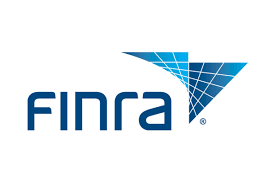 Walker and Ameriprise Financial, pursuant to their agreement, arbitrated their dispute under FINRA rules. Walker argued that the panel “exceeded its powers,” and thus fell within a statutory ground for vacatur of the arbitration award. The Fifth Circuit disagreed: “’An arbitrator exceeds his powers [under § 10(a)(4)] if he acts contrary to express contractual provisions.’ Walker does not argue that the panel violated any express provisions of the arbitration agreement, but only that it incorrectly applied [FINRA] Rule 13504.” Walker v. Ameriprise Fin. Servcs., Inc., No. 18-11641 (Oct. 9, 2019) (unpublished).
Walker and Ameriprise Financial, pursuant to their agreement, arbitrated their dispute under FINRA rules. Walker argued that the panel “exceeded its powers,” and thus fell within a statutory ground for vacatur of the arbitration award. The Fifth Circuit disagreed: “’An arbitrator exceeds his powers [under § 10(a)(4)] if he acts contrary to express contractual provisions.’ Walker does not argue that the panel violated any express provisions of the arbitration agreement, but only that it incorrectly applied [FINRA] Rule 13504.” Walker v. Ameriprise Fin. Servcs., Inc., No. 18-11641 (Oct. 9, 2019) (unpublished).
The district court held a jury trial on whether Gilbert Galan had notice of Valero Energy’s (his employer) arbitration program. Valero called the arbitation program “Dialogue”; the jury charge asked whether “Valero prove[d] by a preponderance of the evidence that it gave unequivocal notice  to Gilbert Galan, Jr. of definite changes in employment terms regarding Valero’s Dialogue program[,]” Additionally, an instruction said that the “sole issue in this trial is whether Defendant[] Valero . . . notified plaintiff of the arbitration program and its mandatory nature.” Galan objected that the question did not have the word “arbitration”; “[h]is point is that the jury could have concluded Galan knew about the Dialogue Program as a whole, but not the part of it requiring arbitration.” The Fifth Circuit found no abuse of discretion in denying that request, especially given the instruction accompanying the question. Galan v. Valero Services, Inc., No. 19-400753 (Sept. 23, 2019) (unpublished).
to Gilbert Galan, Jr. of definite changes in employment terms regarding Valero’s Dialogue program[,]” Additionally, an instruction said that the “sole issue in this trial is whether Defendant[] Valero . . . notified plaintiff of the arbitration program and its mandatory nature.” Galan objected that the question did not have the word “arbitration”; “[h]is point is that the jury could have concluded Galan knew about the Dialogue Program as a whole, but not the part of it requiring arbitration.” The Fifth Circuit found no abuse of discretion in denying that request, especially given the instruction accompanying the question. Galan v. Valero Services, Inc., No. 19-400753 (Sept. 23, 2019) (unpublished).
 The Flying Dutchman is a mythical ship that forever travels the seas, unable to find a port. Conn Appliances, Inc. v. Williams presents a similar tale about a dispute involving a retail installment contract. Williams sued Conn in Tennessee, realized that he had an arbitration agreement in his contract, and then dismissed his suit in favor of arbitration in Tennessee (the clause required arbitration “near his residence”). Williams won; he filed suit in Tennessee to enforce the award while Conn filed sued in its
The Flying Dutchman is a mythical ship that forever travels the seas, unable to find a port. Conn Appliances, Inc. v. Williams presents a similar tale about a dispute involving a retail installment contract. Williams sued Conn in Tennessee, realized that he had an arbitration agreement in his contract, and then dismissed his suit in favor of arbitration in Tennessee (the clause required arbitration “near his residence”). Williams won; he filed suit in Tennessee to enforce the award while Conn filed sued in its  home state of Texas to vacate it (the clause allowed confirmation in “any court with jurisdiction”). The Fifth Circuit agreed that Williams was not subject to personal jurisdiction in Texas, and affirmed the dismissal of that action. Conn protested that it was not subject to jurisdiction in Tennessee, and the Court observed: “[E]ven if the Western District of Tennessee is not the proper forum, the lack of jurisdiction over Conn in another forum does not mean that the Southern District of Texas has personal jurisdiction over Williams.” No. 19-20139 (Sept. 4, 2019).
home state of Texas to vacate it (the clause allowed confirmation in “any court with jurisdiction”). The Fifth Circuit agreed that Williams was not subject to personal jurisdiction in Texas, and affirmed the dismissal of that action. Conn protested that it was not subject to jurisdiction in Tennessee, and the Court observed: “[E]ven if the Western District of Tennessee is not the proper forum, the lack of jurisdiction over Conn in another forum does not mean that the Southern District of Texas has personal jurisdiction over Williams.” No. 19-20139 (Sept. 4, 2019).
 A long-litigated dispute about arbitrability reached its latest stage in Archer & White Sales, Inc. v. Henry Schein, Inc., on remand from the Supreme Court, in which the Fifth Circuit held: “The most natural reading of the arbitration clause at issue here states that any dispute, except actions seeking injunctive relief, shall be resolved in arbitration in accordance with the AAA rules. The plain language incorporates the AAA rules—and therefore delegates arbitrability—for all disputes except those under the carve-out. Given that carve-out, we cannot say that the Dealer Agreement evinces a ‘clear and unmistakable’ intent to delegate arbitrability.”
A long-litigated dispute about arbitrability reached its latest stage in Archer & White Sales, Inc. v. Henry Schein, Inc., on remand from the Supreme Court, in which the Fifth Circuit held: “The most natural reading of the arbitration clause at issue here states that any dispute, except actions seeking injunctive relief, shall be resolved in arbitration in accordance with the AAA rules. The plain language incorporates the AAA rules—and therefore delegates arbitrability—for all disputes except those under the carve-out. Given that carve-out, we cannot say that the Dealer Agreement evinces a ‘clear and unmistakable’ intent to delegate arbitrability.”
As for the Supreme Court’s opinion, the panel said: “We are mindful of the Court’s reminder that ‘[w]hen the parties’ contract delegates the arbitrability question to an arbitrator, the courts must respect the parties’ decision as embodied in the contract.’ But we must also heed its warning that ‘courts “should not assume that the parties agreed to arbitrate arbitrability unless there is clear and unmistakable evidence that they did so.’”‘ The parties could have unambiguously delegated this question, but they did not, and we are not empowered to re-write their agreement.” No. 16-41674 (Aug. 16, 2019).
 “Ordinarily, courts must refrain from interfering with arbitration proceedings. But as our sister circuits have held, and as we now hold today, class arbitration is a ‘gateway’ issue that must be decided by courts, not arbitrators—absent clear and unmistakable language in the arbitration clause to the contrary.” 20/20 Communications, Inc. v. Crawford, No. 1810260 (July 22, 2019).
“Ordinarily, courts must refrain from interfering with arbitration proceedings. But as our sister circuits have held, and as we now hold today, class arbitration is a ‘gateway’ issue that must be decided by courts, not arbitrators—absent clear and unmistakable language in the arbitration clause to the contrary.” 20/20 Communications, Inc. v. Crawford, No. 1810260 (July 22, 2019).
 AccentCare sent an arbitration agreement to Trammell’s home; “[t]he district court applied the ‘mailbox rule’ to presume that Trammell received the company’s proffered arbitration agreement even though she testified that she never received the contract and indicated to her employer that she was experiencing difficulties in receiving and sending mail.” This showing, especially given that AccentCare could not produce a signed agreement or otherwise rebut her claims about problems with mail, the Fifth Circuit reversed: “Because Trammell created a genuine issue of material fact regarding whether an arbitration agreement was formed, she is entitled to a jury trial under Section 4 of the FAA.” Trammell v. AccentCare, Inc., No 18-50872 (June 7, 2019, unpublished).
AccentCare sent an arbitration agreement to Trammell’s home; “[t]he district court applied the ‘mailbox rule’ to presume that Trammell received the company’s proffered arbitration agreement even though she testified that she never received the contract and indicated to her employer that she was experiencing difficulties in receiving and sending mail.” This showing, especially given that AccentCare could not produce a signed agreement or otherwise rebut her claims about problems with mail, the Fifth Circuit reversed: “Because Trammell created a genuine issue of material fact regarding whether an arbitration agreement was formed, she is entitled to a jury trial under Section 4 of the FAA.” Trammell v. AccentCare, Inc., No 18-50872 (June 7, 2019, unpublished).
(The specific FAA provision, often referred to but rarely used, says: “. . . the party alleged to be in default may, except in cases of admiralty, on or before the return day of the notice of application, demand a jury trial of such issue, and upon such demand the court shall make an order referring the issue or issues to a jury in the manner provided by the Federal Rules of Civil Procedure, or may specially call a jury for that purpose”).
 A recurring question in commercial arbitration is the amount of detail required for a “reasoned award’ – described generally as “something short of findings and conclusions but more than a simple result.” The Fifth Court provides a helpful example in YPF S.A. v. Apache Overseas, Inc., which quotes the relevant part of the arbitrator’s award and holds: “KPMG noted that it based its analysis on the parties’ statements and accounting records, pointed to its finding on the accrual of liabilities, and explained what documentation it found relevant in evaluating the proper refund amount.” No. 17-20802 (May 24, 2019).
A recurring question in commercial arbitration is the amount of detail required for a “reasoned award’ – described generally as “something short of findings and conclusions but more than a simple result.” The Fifth Court provides a helpful example in YPF S.A. v. Apache Overseas, Inc., which quotes the relevant part of the arbitrator’s award and holds: “KPMG noted that it based its analysis on the parties’ statements and accounting records, pointed to its finding on the accrual of liabilities, and explained what documentation it found relevant in evaluating the proper refund amount.” No. 17-20802 (May 24, 2019).
 While “[t]he Texas Supreme Court has not had occasion to determine whether a contract that is unsigned but otherwise enforceable may incorporate an unsigned document by reference,” that was the issue presented in Int’l Corrugated & Packing Supplies, Inc. v. Lear Corp. But in the context of an interlocutory appeal from denial of a motion to compel arbitration, the Fifth Circuit “declined[d] to resolve this novel question of Texas law here because the district court has not yet ruled on the enforceability of Lear’s purchase orders. Specifically, . . . how the parties entered the agreements at issue in this case—either through purchase orders, or phone calls or emails prior to the sending of purchase orders, or some other conduct—nor has it determined what effect, if any, the parties’ course of dealing has on such agreements [under the UCC].” No. 18-50167 (May 3, 2019) (unpublished).
While “[t]he Texas Supreme Court has not had occasion to determine whether a contract that is unsigned but otherwise enforceable may incorporate an unsigned document by reference,” that was the issue presented in Int’l Corrugated & Packing Supplies, Inc. v. Lear Corp. But in the context of an interlocutory appeal from denial of a motion to compel arbitration, the Fifth Circuit “declined[d] to resolve this novel question of Texas law here because the district court has not yet ruled on the enforceability of Lear’s purchase orders. Specifically, . . . how the parties entered the agreements at issue in this case—either through purchase orders, or phone calls or emails prior to the sending of purchase orders, or some other conduct—nor has it determined what effect, if any, the parties’ course of dealing has on such agreements [under the UCC].” No. 18-50167 (May 3, 2019) (unpublished).
 An arbitration panel, organized under the rules of the Houston Bar Association, awarded a substantial sum to an attorney in a fee dispute with his former client. The client sought vacatur on the ground that it not know the non-attorney member of the panel worked for a large law firm (to paraphrase Claude Rains’s character in Casablanca, it was shocked, SHOCKED to make this discovery). The Fifth Circuit found this argument waived, and did not accept the client’s argument that waiver should be limited to vacatur based on conflicts of interest: “We therefore conclude that Light-Age waived its objection to Davis’s participation on the panel. Light-Age had constructive knowledge that Davis worked for a law firm at the time of the arbitration hearing; it could have discovered that Jackson Walker was a law firm simply by clicking on the link provided in Davis’s email signature or running a brief internet search. It is reasonable to expect even a pro se litigant to perform such basic research into its arbitrator.” Ashcroft-Smith v. Light-Age, Inc., No. 18-20098 (April 25, 2019) (emphasis added).
An arbitration panel, organized under the rules of the Houston Bar Association, awarded a substantial sum to an attorney in a fee dispute with his former client. The client sought vacatur on the ground that it not know the non-attorney member of the panel worked for a large law firm (to paraphrase Claude Rains’s character in Casablanca, it was shocked, SHOCKED to make this discovery). The Fifth Circuit found this argument waived, and did not accept the client’s argument that waiver should be limited to vacatur based on conflicts of interest: “We therefore conclude that Light-Age waived its objection to Davis’s participation on the panel. Light-Age had constructive knowledge that Davis worked for a law firm at the time of the arbitration hearing; it could have discovered that Jackson Walker was a law firm simply by clicking on the link provided in Davis’s email signature or running a brief internet search. It is reasonable to expect even a pro se litigant to perform such basic research into its arbitrator.” Ashcroft-Smith v. Light-Age, Inc., No. 18-20098 (April 25, 2019) (emphasis added).
 Papalote, a wind-power producer, had a dispute with the Lower Colorado River Authority; a key issue was whether a $60 million limitation-of-liability clause applied. Their contract had an arbitration provision that applied “if any dispute arises with respect to either Party’s performance.” The Fifth Circuit found that the dispute was not subject to arbitration, as it “is a dispute related to the the interpretation of the Agreement, not a performance-related dispute . . . ..” Papalote Creek II v. Lower Colorado River Authority, No. 17-50852 (March 15, 2019).
Papalote, a wind-power producer, had a dispute with the Lower Colorado River Authority; a key issue was whether a $60 million limitation-of-liability clause applied. Their contract had an arbitration provision that applied “if any dispute arises with respect to either Party’s performance.” The Fifth Circuit found that the dispute was not subject to arbitration, as it “is a dispute related to the the interpretation of the Agreement, not a performance-related dispute . . . ..” Papalote Creek II v. Lower Colorado River Authority, No. 17-50852 (March 15, 2019).
 Justice Kavanaugh’s first signed Supreme Court opinion was a 9-0 reversal of the Fifth Circuit in Schein v. Archer & White, 17-1272 (Jan. 8, 2019). The Fifth Circuit opinion found that the district court, rather than the arbitrator, could make a decision about arbitrability when the request for arbitration was “wholly groundless”; the Supreme Court rejected that line of authority and held that this language vested the arbitrator with sole authority over such disputes:
Justice Kavanaugh’s first signed Supreme Court opinion was a 9-0 reversal of the Fifth Circuit in Schein v. Archer & White, 17-1272 (Jan. 8, 2019). The Fifth Circuit opinion found that the district court, rather than the arbitrator, could make a decision about arbitrability when the request for arbitration was “wholly groundless”; the Supreme Court rejected that line of authority and held that this language vested the arbitrator with sole authority over such disputes:
“Disputes. This Agreement shall be governed by the laws of the State of North Carolina. Any dispute arising under or related to this Agreement (except for actions seeking injunctive relief and disputes related to trademarks, trade secrets, or other intellectual property of [Schein]), shall be resolved by binding ar- bitration in accordance with the arbitration rules of the American Arbitration Association [(AAA)]. The place of arbitration shall be in Charlotte, North Carolina.”
 The Fifth Circuit found a waiver of the right to arbitrate in Forby v. One Technologies, finding as to the requirement of prejudice: “The district court erred in concluding that Forby failed to establish prejudice to her legal position. When a party will have to re-litigate in the arbitration forum an issue already decided by the district court in its favor, that party is prejudiced.” No.17-10883 (Nov. 28, 2018).
The Fifth Circuit found a waiver of the right to arbitrate in Forby v. One Technologies, finding as to the requirement of prejudice: “The district court erred in concluding that Forby failed to establish prejudice to her legal position. When a party will have to re-litigate in the arbitration forum an issue already decided by the district court in its favor, that party is prejudiced.” No.17-10883 (Nov. 28, 2018).
 Griggs was ordered to arbitrate his dispute with Stream Energy. Griggs refused to do so. When asked by the district court for a status report, in an echo of Bartleby the Scrivener’s famous “I would prefer not to,” Griggs responded in relevant part:
Griggs was ordered to arbitrate his dispute with Stream Energy. Griggs refused to do so. When asked by the district court for a status report, in an echo of Bartleby the Scrivener’s famous “I would prefer not to,” Griggs responded in relevant part:
“Griggs anticipated that this Court would have already dismiss[ed] this case for want of prosecution because this Court left him only an arbitration which he has not pursued. So, Griggs states the following for the Court’s consideration: 1. Griggs understands and appreciates this Court’s order compelling arbitration. Griggs believes that the Court cons[idered] all arguments before it ruled. 2. However, Griggs disagrees with this Court’s conclusion that this matter must go to arbitration. 3. Griggs will not pursue arbitration. 4. Griggs stands ready to litigate this case before this Court to a conclusion.”
The district court then dismissed the case without prejudice. After review of the various kinds of dismissals addressed by Fed. R. Civ. P. 41, the Fifth Circuit treated the dismissal order as one for “delay or contumacious conduct” under Rule 41(b) – and thus, declined to reach the merits of the arbitration ruling: “Griggs should not be permitted, through recalcitrance, to obtain the review of the arbitration clause that he was expressly denied in the district court, a review that Congress has foreclosed under the Federal Arbitration Act.” Griggs v. SGE Management LLC, No. 17-50655 (Sept. 27, 2018).
 Huckaba signed an arbitration agreement with her employer, Ref-Chem – but Ref-Chem did not sign the agreement. The agreement had signature blocks for both parties, referred to the “signature affixed hereto” and the legal effect of “signing this agreement,” and also said that it “may not be changed, except in writing and signed by all parties.” The Fifth Circuit concluded that the agreement was not enforceable, focusing on the distinction between acceptance of the offer, and the separate requirement of “execution and delivery of the contract with intent that it be mutual and binding.” Huckaba v. Ref-Chem, L.P., No. 17-50341 (June 11, 2018).
Huckaba signed an arbitration agreement with her employer, Ref-Chem – but Ref-Chem did not sign the agreement. The agreement had signature blocks for both parties, referred to the “signature affixed hereto” and the legal effect of “signing this agreement,” and also said that it “may not be changed, except in writing and signed by all parties.” The Fifth Circuit concluded that the agreement was not enforceable, focusing on the distinction between acceptance of the offer, and the separate requirement of “execution and delivery of the contract with intent that it be mutual and binding.” Huckaba v. Ref-Chem, L.P., No. 17-50341 (June 11, 2018).
A vigorously-litigated line  of Texas authority, often in the context of employment relationships defined by multiple documents, addresses whether an arbitration agreement is an illusory promise and thus unenforceable. In Arnold v. Homeaway, Inc. the Fifth Circuit addressed whether such a challenge went to “validity” (and could thus be resolved by an arbitrator under a “gateway” arbitration provision), or to “formation,” and could not. Drawing an analogy to Mississippi’s “minutes role” about the required documentation for contracts with public entities, the Court concluded that the challenge went to validity. Nos. 17-50088 and 17-50102 (May 15, 2018).
of Texas authority, often in the context of employment relationships defined by multiple documents, addresses whether an arbitration agreement is an illusory promise and thus unenforceable. In Arnold v. Homeaway, Inc. the Fifth Circuit addressed whether such a challenge went to “validity” (and could thus be resolved by an arbitrator under a “gateway” arbitration provision), or to “formation,” and could not. Drawing an analogy to Mississippi’s “minutes role” about the required documentation for contracts with public entities, the Court concluded that the challenge went to validity. Nos. 17-50088 and 17-50102 (May 15, 2018).
 The Supreme Court has stayed further proceedings in Archer & Daniels Sales v. Henry Schein Inc., a dispute about the arbitrability of a substantial antitrust case about dental equipment. The application and response are an interesting window into this seldom-seen aspect of civil practice.
The Supreme Court has stayed further proceedings in Archer & Daniels Sales v. Henry Schein Inc., a dispute about the arbitrability of a substantial antitrust case about dental equipment. The application and response are an interesting window into this seldom-seen aspect of civil practice.
 The Louisiana Department of Natural Resources complained that it was not able to call live witnesses at an arbitration with FEMA, conducted under federal regulations by the Civilian Board of Contract Appeals. Agreeing that the regulations allowed oral presentation of evidence, but also noting the fulsome written submission received without objection, the Fifth Circuit observed: “Vacatur . . . is warranted when the panel refuses to hear material, not just any, evidence; similarly, there is no indication oral presentation ‘might have altered the outcome of the arbitration.'” Louisiana Dep’t of Natural Resources v. FEMA, No. 17-30140 (Jan. 29, 2018, unpublished) (emphasis added).
The Louisiana Department of Natural Resources complained that it was not able to call live witnesses at an arbitration with FEMA, conducted under federal regulations by the Civilian Board of Contract Appeals. Agreeing that the regulations allowed oral presentation of evidence, but also noting the fulsome written submission received without objection, the Fifth Circuit observed: “Vacatur . . . is warranted when the panel refuses to hear material, not just any, evidence; similarly, there is no indication oral presentation ‘might have altered the outcome of the arbitration.'” Louisiana Dep’t of Natural Resources v. FEMA, No. 17-30140 (Jan. 29, 2018, unpublished) (emphasis added).
 Plaintiffs alleged antitrust violations by distributors of dental equipment; seeking damages and injunctive relief. The defendants sought to compel arbitration, based on this arbitration clause in a relevant contract:
Plaintiffs alleged antitrust violations by distributors of dental equipment; seeking damages and injunctive relief. The defendants sought to compel arbitration, based on this arbitration clause in a relevant contract:
Disputes. This Agreement shall be governed by the laws of the State of North Carolina. Any dispute arising under or related to this Agreement (except for actions seeking injunctive relief and disputes related to trademarks, trade secrets, or other intellectual property of Pelton & Crane), shall be resolved by binding arbitration in accordance with the arbitration rules of the American Arbitration Association [(AAA)]. The place of arbitration shall be in Charlotte, North Carolina.
The issue was whether arbitrability was for the courts to decide or the arbitrator. The Fifth Circuit applied “the two-step inquiry adoped in Douglas v. Regions Bank[, 757 F.3d 460 (5th Cir. 2014),] under which the first question is whether the parties “clearly and unmistakably” intended to delegate the question of arbitrability to an arbitrator. Finding that “the interaction between the AAA Rules and the [injunctive relief] carve-out is at best ambiguous,” the Court chose not to resolve that issue, concluding that the second Douglas question was dispositive. That question asks whether the “assertion of arbitrability is wholly groundless,” which the Court found to be the case:
The arbitration clause creates a carve-out for ‘actions seeking injunctive relief.’ It does not limit the exclusion to ‘actions seeking only injunctive relief,’ nor ‘actions for injunction in aid of an arbitrator’s award.’ Nor does it limit itself to only claims for injunctive relief. . . . The mere fact that the arbitration clause allows Archer to avoid arbitration by adding a claim for injunctive relief does not change the clause’s plain meaning.
Archer & White Sales v. Henry Schein, Inc., No. 16-41674 (Dec. 21, 2017) (emphasis added).
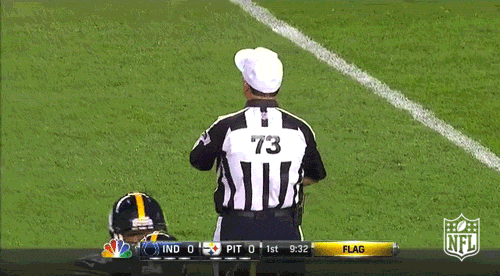 In a 2-1 decision, the Fifth Circuit found that Ezekiel Elliott failed to exhaust remedies within the NFL’s dispute-resolution process before filing suit, meaning that the federal courts lacked subject matter jurisdiction over his complaints. A dissent found a sufficient question about the adequacy of the process to justify the exercise of jurisdiction under the relevant authorities. NFLPA v. NFL, No. 17-40936 (Oct. 12, 2017). While of enormous interest to Cowboys fans, so far as arbitration goes, the opinion is centered on issues unique to collective bargaining agreements.
In a 2-1 decision, the Fifth Circuit found that Ezekiel Elliott failed to exhaust remedies within the NFL’s dispute-resolution process before filing suit, meaning that the federal courts lacked subject matter jurisdiction over his complaints. A dissent found a sufficient question about the adequacy of the process to justify the exercise of jurisdiction under the relevant authorities. NFLPA v. NFL, No. 17-40936 (Oct. 12, 2017). While of enormous interest to Cowboys fans, so far as arbitration goes, the opinion is centered on issues unique to collective bargaining agreements.
 The parties in IQ Products Co. v. WD-40 Co.disputed whether an arbitration agreement was limited to “propane/butane-propelled produicts” or also “carbon dioxide-propelled products.” The party who prevailed in the arbitration relied mainly on the parties’ subsequent conduct to justify the broader reading, and the Fifth Circuit agreed (applying California law): “Considering . . . ‘the words used . . . as well as extrinsic evidence of such objective matters and the surrounding circumstances under which the parties negotiated [and] entered into the contract; the object, nature and subject matter of the contract; and the subsequent conduct of the parties . . . WD-40’s assertion is . . . not wholly groundless.” No. 16-20595 (Sept. 13, 2017).
The parties in IQ Products Co. v. WD-40 Co.disputed whether an arbitration agreement was limited to “propane/butane-propelled produicts” or also “carbon dioxide-propelled products.” The party who prevailed in the arbitration relied mainly on the parties’ subsequent conduct to justify the broader reading, and the Fifth Circuit agreed (applying California law): “Considering . . . ‘the words used . . . as well as extrinsic evidence of such objective matters and the surrounding circumstances under which the parties negotiated [and] entered into the contract; the object, nature and subject matter of the contract; and the subsequent conduct of the parties . . . WD-40’s assertion is . . . not wholly groundless.” No. 16-20595 (Sept. 13, 2017).
 The high-profile dispute between Dallas Cowboys star Ezekiel Elliott and the NFL Players’ Association, on the one hand, and the NFL on the other, has reached the Fifth Circuit after the district court’s grant of a preliminary injunction against Elliott’s suspension by the league. The NFL has moved for an interim stay; the successful plaintiffs have responded; and a motions panel of the Court will consider that issue in the week ahead.
The high-profile dispute between Dallas Cowboys star Ezekiel Elliott and the NFL Players’ Association, on the one hand, and the NFL on the other, has reached the Fifth Circuit after the district court’s grant of a preliminary injunction against Elliott’s suspension by the league. The NFL has moved for an interim stay; the successful plaintiffs have responded; and a motions panel of the Court will consider that issue in the week ahead.
 Addressing a novel but important question, the Fifth Circuit found in that a state law attachment remedy was available to faciliate an international arbitration about a shipment of pig iron, and that federal courts had removal jurisdiction over the proceedings under the Convention on the Recognition and Enforcement of Foreign Arbital Awards. Stemcor USA v. CIA Siderurgica do Para Cosipar, No. 16-30984 (Sept. 1, 2017).
Addressing a novel but important question, the Fifth Circuit found in that a state law attachment remedy was available to faciliate an international arbitration about a shipment of pig iron, and that federal courts had removal jurisdiction over the proceedings under the Convention on the Recognition and Enforcement of Foreign Arbital Awards. Stemcor USA v. CIA Siderurgica do Para Cosipar, No. 16-30984 (Sept. 1, 2017).
Vine v. PLS Financial Services presents the infrequently-encountered waiver of arbitration rights by litigation conduct. PLS made a short-term loan to Vine; to obtain such a loan, a PLS customer must present a blank or post-dated check sufficient to cover the loan amount and a finance charge. PLS and Vine had a broad, general arbitration agreement. The Fifth Circuit found that PLS waived that right when it submitted inaccurate “worthless check affidavits” under Texas law after Vine defaulted. It held that the issue of waiver by litigation conduct, as distinct from waiver by failure to comply with a contractual condition precedent, was appropriate for the court rather than an arbitrator. And, the general clause here did not have specific language about that particular waiver issue. A dissent questioned whether submitting the affidavits amounted to “substantial invocation” of the judicial process, as required for waiver of an arbitration right. No. 16-50847 (May 19, 2017, unpublished).
The district court in Salas v. GE Oil & Gas ordered arbitration in 2014 and dismissed the case. The arbitration did not proceed. Each side blamed the other; the district court had a status conference in 2016; and afterwards, withdrew its earlier order and reopened the case. The Fifth Circuit found that the district court lacked jurisdiction to do so, as its 2016 order “did not fall within the narrow scope of th[e] ancillary jurisdiction” provided by section 4 of the FAA: “The court neither determined whether the parties’ agreement to arbitrate was valid nor enforced that agreement. Instead, the court found that the parties had ‘failed’ to arbitrate and withdrew its prior order compelling arbitration. This was not permitted under the FAA.” No. 16-20379 (May 12, 2017).
The receiver of the Allen Stanford businesses sued several investors for receiving fraudulent conveyances. In earlier appeals, the Fifth Circuit resolved other thresehold issues in these cases; in Janvey v. Alguire, the Court reviewed the denials of the defendants’ motions to compel arbitration. It affirmed, rejecting their arguments based on arbitration clauses in various Stanford-related documents: “Because the Receiver may sue on behalf of any of the Stanford entities that has a claim against the defendants, becausehe has chosen to sue on behalf of the Bank, which has not consented to arbitrate claims against any of the defendants [except for one, who waived the issue], and because none of the equitable doctrines urged by the defendants applies, the Receiver cannot be compelled to arbitate his claims against these defendants.” No. 14-10945 et al. (Jan. 31, 2017).
defendants, becausehe has chosen to sue on behalf of the Bank, which has not consented to arbitrate claims against any of the defendants [except for one, who waived the issue], and because none of the equitable doctrines urged by the defendants applies, the Receiver cannot be compelled to arbitate his claims against these defendants.” No. 14-10945 et al. (Jan. 31, 2017).
Lowe brough a class action, alleging that company management breached its fiduciary duties to the employee pension plan, and that KPMG aided those breaches by ignoring the underfunding of the plan. KPMG contended that these claims necessarily implicated its engagement agreement with the company, which contained an arbitration clause, and thus required arbitration under the “direct-benefit estoppel” doctrine. Here, “Lowe did not know about the Engagement Letters, and has disclaimed any reliance on the Letters, and her claims rely on common law tort theories, not on the Letters.” The Court concluded that “[i]f that choice makes it harder for [Lowe] to prove her case, so be it,” but her claims as currently stated did not depend on KPMG’s engagment agreement and thus did not have to be arbitrated.” Lowe v. KPMG, No. 16-60263 (Jan. 5, 2017, unpublished).
 Hays, a cardiologist suffering from epilepsy, sued HCA for wrongful discharge as a result of mishandling his illness. The Fifth Circuit agreed that his tortious interference claim against HCA had to be arbitrated, because its viability depended on reference to the employment agreement between him and the specific hospital where he worked. It also affirmed on the theory of “intertwined claims estoppel,” making an Erie guess that the Texas Supreme Court would recognize this theory, and concluding that “Hays’s current efforts to distinguish amongst defendants and claims are the archetype of strategic pleading intended to avoid the arbitral forum, precisely what intertwined claims estoppel is designed to prevent.” Hays v. HCA Holdings, No. 15-51002 (Sept. 29, 2016).
Hays, a cardiologist suffering from epilepsy, sued HCA for wrongful discharge as a result of mishandling his illness. The Fifth Circuit agreed that his tortious interference claim against HCA had to be arbitrated, because its viability depended on reference to the employment agreement between him and the specific hospital where he worked. It also affirmed on the theory of “intertwined claims estoppel,” making an Erie guess that the Texas Supreme Court would recognize this theory, and concluding that “Hays’s current efforts to distinguish amongst defendants and claims are the archetype of strategic pleading intended to avoid the arbitral forum, precisely what intertwined claims estoppel is designed to prevent.” Hays v. HCA Holdings, No. 15-51002 (Sept. 29, 2016).
 The Romans sued Ford Motor Co. and a Houston AutoNation dealer. The dealer moved to compel arbitration; the district court denied the motion; and the dealer appealed. Unfortunately, the Fifth Circuit was “not satisfied, based on the record before it, that [the dealer] does not share citizenship with the Romans.” Reminding that the Federal Arbitration Act is not an independent basis for federal jurisdiction, the Court vacated the district court’s order and remanded for determination of subject matter jurisdiction — with instructions to dismiss if diversity was not established. Roman v. AutoNation Ford Gulf Freeway, No. 16-20047 (Oct. 13, 2016, unpublished).
The Romans sued Ford Motor Co. and a Houston AutoNation dealer. The dealer moved to compel arbitration; the district court denied the motion; and the dealer appealed. Unfortunately, the Fifth Circuit was “not satisfied, based on the record before it, that [the dealer] does not share citizenship with the Romans.” Reminding that the Federal Arbitration Act is not an independent basis for federal jurisdiction, the Court vacated the district court’s order and remanded for determination of subject matter jurisdiction — with instructions to dismiss if diversity was not established. Roman v. AutoNation Ford Gulf Freeway, No. 16-20047 (Oct. 13, 2016, unpublished).
 The losing party in an arbitration opposed confirmation on, among other grounds, a challenge to the disclosures made by JAMS. Specifically, the party complained that JAMS had not disclosed a relationship between the other side and another JAMS-affiliated arbitrator. This complaint did not meet the demanding standard for a disqualifying bias: “Here, the Arbitrator explicitly stated that he and Bates had never discussed this arbitration and that Bates did not know the Arbitrator was even at this hearing. In fact, there is no evidence that Bates had any relationship with the Arbitrator other than the fact that both serve as JAMS arbitrators. Most importantly, Cooper points to nothing in the record that would indicate that the Arbitrator had any prejudice against him.” Cooper v. WestEmd Capital Management LLC, No. 15-31068 (Aug. 9, 2016).
The losing party in an arbitration opposed confirmation on, among other grounds, a challenge to the disclosures made by JAMS. Specifically, the party complained that JAMS had not disclosed a relationship between the other side and another JAMS-affiliated arbitrator. This complaint did not meet the demanding standard for a disqualifying bias: “Here, the Arbitrator explicitly stated that he and Bates had never discussed this arbitration and that Bates did not know the Arbitrator was even at this hearing. In fact, there is no evidence that Bates had any relationship with the Arbitrator other than the fact that both serve as JAMS arbitrators. Most importantly, Cooper points to nothing in the record that would indicate that the Arbitrator had any prejudice against him.” Cooper v. WestEmd Capital Management LLC, No. 15-31068 (Aug. 9, 2016).
 In Kubala v. Supreme Production Services, the parties disputed whether an arbitration agreement reached an employment claim that arose before entry into the agreement. The district court found that it did not and denied the motion to compel arbitration. The Fifth Circuit reversed, finding this delegation clause “strikingly similar” to the one at issue in Rent-A-Center v. Jackson, 561 U.S. 63 (2010): “The arbitrator shall have the sole authority to rule on his/her own jurisdiction, including any challenges or objections with respect to the existence, applicability, scope, enforceability, construction, validity and
In Kubala v. Supreme Production Services, the parties disputed whether an arbitration agreement reached an employment claim that arose before entry into the agreement. The district court found that it did not and denied the motion to compel arbitration. The Fifth Circuit reversed, finding this delegation clause “strikingly similar” to the one at issue in Rent-A-Center v. Jackson, 561 U.S. 63 (2010): “The arbitrator shall have the sole authority to rule on his/her own jurisdiction, including any challenges or objections with respect to the existence, applicability, scope, enforceability, construction, validity and
interpretation of this Policy and any agreement to arbitrate a Covered Dispute.” The Court summarized: “The court appears to have thought that the question at the first step of the analysis is whether there is an agreement to arbitrate the claim currently before the court. But as we have explained, the only issue at the first step is whether there is any agreement to arbitrate any set of claims.” No. 15-41507 (July 20, 2016).
 The unsuccessful parties in the arbitration of a real estate dispute challenged confirmation of the award. The Fifth Circuit rejected the argument that the phrase “any other misbehavior by which the rights of any party have been prejudiced in 9 USC § 10(a)(3) could be read as applying to the district court. It also rejected a discovery-related argument when “[t]he arbitrator decided not to issue subpoenas when the Investors failed to answer his questions about what evidence they needed from the two witnesses, who were outside the legal subpoena range, and who were less involved in the relevant transactions than the two Rainier witnesses who testified live at the hearing.” Rainier DSC 1 LLC v. Rainier Capital Management LP, No. 15-20383 (July 7, 2016).
The unsuccessful parties in the arbitration of a real estate dispute challenged confirmation of the award. The Fifth Circuit rejected the argument that the phrase “any other misbehavior by which the rights of any party have been prejudiced in 9 USC § 10(a)(3) could be read as applying to the district court. It also rejected a discovery-related argument when “[t]he arbitrator decided not to issue subpoenas when the Investors failed to answer his questions about what evidence they needed from the two witnesses, who were outside the legal subpoena range, and who were less involved in the relevant transactions than the two Rainier witnesses who testified live at the hearing.” Rainier DSC 1 LLC v. Rainier Capital Management LP, No. 15-20383 (July 7, 2016).
 After Hall Street Associates LLC v. Mattel, Inc., 552 U.S. 576 (2008), the Fifth Circuit concluded that “manifest disregard of the law” was no longer available as a nonstatutory ground for vacatur of an arbitration award under the FAA. Since then, other circuits have considered whether “manifest disregard” can be a statutory basis for vacatur. In McKool Smith PC v. Curtis Int’l, the losing party in an attorneys fee dispute
After Hall Street Associates LLC v. Mattel, Inc., 552 U.S. 576 (2008), the Fifth Circuit concluded that “manifest disregard of the law” was no longer available as a nonstatutory ground for vacatur of an arbitration award under the FAA. Since then, other circuits have considered whether “manifest disregard” can be a statutory basis for vacatur. In McKool Smith PC v. Curtis Int’l, the losing party in an attorneys fee dispute  mounted such a challenge to the arbitrator’s award in favor of the firm, but the Court sidestepped the issue, finding support for the arbitrator’s rulings in the applicable Texas case law. No. 15-11140 (May 23, 2016, unpublished) (Almost simultaneously, the Texas Supreme Court rejected the “statutory basis” argument in Hoskins v. Hoskins, No. 15-0046 (May 20, 2016)).
mounted such a challenge to the arbitrator’s award in favor of the firm, but the Court sidestepped the issue, finding support for the arbitrator’s rulings in the applicable Texas case law. No. 15-11140 (May 23, 2016, unpublished) (Almost simultaneously, the Texas Supreme Court rejected the “statutory basis” argument in Hoskins v. Hoskins, No. 15-0046 (May 20, 2016)).
 Appellants, investors who lost money in their dealings with Allen Stanford, began a FINRA arbitration against Pershing LLC, a clearing broker. The panel rejected appellants’ $80 million claim, awarding only $10,000 in arbitration-related expenses. Pershing sought confirmation in federal court and encountered a split in authority about the amount-in-controversy requirement — the “demand” approach, which would allow jurisdiction, and the “award” approach, which would not. The Fifth Circuit sided with the “demand” approach, finding that it “recognizes the true scope of the controversy between the parties,” and was consistent with the corresponding test for claims filed in district court. A lengthy concurrence suggested that a “general approach” was not needed, given the different fact patterns that can give rise to this kind of dispute about the amount in controversy. Pershing LLC v. Kiebach, No. 15-30396 (April 6, 2016).
Appellants, investors who lost money in their dealings with Allen Stanford, began a FINRA arbitration against Pershing LLC, a clearing broker. The panel rejected appellants’ $80 million claim, awarding only $10,000 in arbitration-related expenses. Pershing sought confirmation in federal court and encountered a split in authority about the amount-in-controversy requirement — the “demand” approach, which would allow jurisdiction, and the “award” approach, which would not. The Fifth Circuit sided with the “demand” approach, finding that it “recognizes the true scope of the controversy between the parties,” and was consistent with the corresponding test for claims filed in district court. A lengthy concurrence suggested that a “general approach” was not needed, given the different fact patterns that can give rise to this kind of dispute about the amount in controversy. Pershing LLC v. Kiebach, No. 15-30396 (April 6, 2016).
 The issue in Gross v. GGNSC Southaven, LLC was whether two nursing home residents had granted powers of attorney that authorized a third party to agree to arbitration on their behalf. The Fifth Circuit concluded that (a) Mississippi law allows proof of an express OR implied agency relationship, even in this context, and (b) testimony of the alleged agent is relevant to whether an implied agency relationship exists. Accordingly, it reversed the denial of the defendants’ motions to compel arbitration for further proceedings. No. 15-60124 & 60248 (March 14, 2016).
The issue in Gross v. GGNSC Southaven, LLC was whether two nursing home residents had granted powers of attorney that authorized a third party to agree to arbitration on their behalf. The Fifth Circuit concluded that (a) Mississippi law allows proof of an express OR implied agency relationship, even in this context, and (b) testimony of the alleged agent is relevant to whether an implied agency relationship exists. Accordingly, it reversed the denial of the defendants’ motions to compel arbitration for further proceedings. No. 15-60124 & 60248 (March 14, 2016).
 In the latest of a long line of cases about arbitration clauses in employment documents that the employer can amend at will, the Fifth Circuit reversed the grant of a motion to compel arbitration in Nelson v. Watch House Int’l, LLC: “Here, the Plan provides that Watch House may make unilateral changes to the Plan, purportedly including termination, and that such a change ‘shall be immediately effective upon notice to’ employees. Watch House’s retention of this unilateral power to terminate the Plan without advance notice renders the plan illusory under a plain reading of Lizalde [v. Vista Quality Markets, 746 F.3d 222 (5th Cir. 2014)].” The opinion details recent cases about a “savings clause” in employee manuals that limit the power to change as to present disputes, following the analysis of In re: Halliburton Co., 80 S.W.3d 566 (Tex. 2002). I am interviewed about this line of cases in this Legal News Line article.
In the latest of a long line of cases about arbitration clauses in employment documents that the employer can amend at will, the Fifth Circuit reversed the grant of a motion to compel arbitration in Nelson v. Watch House Int’l, LLC: “Here, the Plan provides that Watch House may make unilateral changes to the Plan, purportedly including termination, and that such a change ‘shall be immediately effective upon notice to’ employees. Watch House’s retention of this unilateral power to terminate the Plan without advance notice renders the plan illusory under a plain reading of Lizalde [v. Vista Quality Markets, 746 F.3d 222 (5th Cir. 2014)].” The opinion details recent cases about a “savings clause” in employee manuals that limit the power to change as to present disputes, following the analysis of In re: Halliburton Co., 80 S.W.3d 566 (Tex. 2002). I am interviewed about this line of cases in this Legal News Line article.
 In a followup to Al Rushaid v. Nat’l Oilwell Varco, Inc., 757 F.3d 416 (5th Cir. 2014), the Fifth Circuit confronted a situtation where the plaintiffs’ claims against National Oilwell Varco Norway would be arbitrated before the ICC; claims against NOV LP, an American affiliate would be arbitrated in the Southern District of Texas; and claims against other NOV entities that did not sign the relevant arbitration agreement would proceed in Texas state court. The Court declined jurisdiction over NOV LP’s appeal because the district court granted its
In a followup to Al Rushaid v. Nat’l Oilwell Varco, Inc., 757 F.3d 416 (5th Cir. 2014), the Fifth Circuit confronted a situtation where the plaintiffs’ claims against National Oilwell Varco Norway would be arbitrated before the ICC; claims against NOV LP, an American affiliate would be arbitrated in the Southern District of Texas; and claims against other NOV entities that did not sign the relevant arbitration agreement would proceed in Texas state court. The Court declined jurisdiction over NOV LP’s appeal because the district court granted its  motion to compel arbitration, leaving no statutory basis for an otherwise interlocutory appeal. As to the nonsignatories, the Court affirmed, finding that the plaintiffs were not seeking to enforce either contract that implicated arbitration. Acknowledging that the litigation would be “fragmented,” the Court observed: “This is an inevitable and permissible consequence where one of multiple defendants asserts a right to arbitrate.” Al Rushaid v. National Oilwell Varco, No. 15-20260 (Feb. 17, 2016). [On the issue of “fragmentation,” consider the dueling opinions in the recent case of In re: Rolls-Royce Corp., 775 F.3d 671 (5th Cir. 2014)]
motion to compel arbitration, leaving no statutory basis for an otherwise interlocutory appeal. As to the nonsignatories, the Court affirmed, finding that the plaintiffs were not seeking to enforce either contract that implicated arbitration. Acknowledging that the litigation would be “fragmented,” the Court observed: “This is an inevitable and permissible consequence where one of multiple defendants asserts a right to arbitrate.” Al Rushaid v. National Oilwell Varco, No. 15-20260 (Feb. 17, 2016). [On the issue of “fragmentation,” consider the dueling opinions in the recent case of In re: Rolls-Royce Corp., 775 F.3d 671 (5th Cir. 2014)]
 In USHealth Group v. South, applying Texas law, the Fifth Circuit rejected the use of “concerted misconduct estoppel” to compel arbitration against a nonsignatory (citing In re: Merrill Lynch Trust Co. FSB, 235 S.W.3d 185 (Tex. 2007)), and also found no basis for “direct benefits estoppel” because the claims did not arise solely from the contracts with the arbitration clause, and the issues in dispute could be resolved without reference to those contracts (citing In re: Weekley Homes, L.P., 180 S.W.3d 127 (Tex. 2005)). No. 15-10117 (Dec. 8, 2015, unpublished).
In USHealth Group v. South, applying Texas law, the Fifth Circuit rejected the use of “concerted misconduct estoppel” to compel arbitration against a nonsignatory (citing In re: Merrill Lynch Trust Co. FSB, 235 S.W.3d 185 (Tex. 2007)), and also found no basis for “direct benefits estoppel” because the claims did not arise solely from the contracts with the arbitration clause, and the issues in dispute could be resolved without reference to those contracts (citing In re: Weekley Homes, L.P., 180 S.W.3d 127 (Tex. 2005)). No. 15-10117 (Dec. 8, 2015, unpublished).
 A general contractor began an arbitration against several subcontractors about problems with the Sea Breeze Condominiums and Resort in Biloxi, Mississippi. One of the subcontractors resisted the arbitration demand; while it won in district court, the Fifth Circuit reversed, based on this contract language: “If the Contractor has a claim or dispute involving the same general subject matter, either in whole or in part, with any third party if elected by the Contractor, the Subcontractor shall assert its claims and defenses in and shall be bound
A general contractor began an arbitration against several subcontractors about problems with the Sea Breeze Condominiums and Resort in Biloxi, Mississippi. One of the subcontractors resisted the arbitration demand; while it won in district court, the Fifth Circuit reversed, based on this contract language: “If the Contractor has a claim or dispute involving the same general subject matter, either in whole or in part, with any third party if elected by the Contractor, the Subcontractor shall assert its claims and defenses in and shall be bound  by the same forum and in the same proceeding which has jurisdiction over the claims or disputes between the Contractor and such third party.” Unlike other contract terms about arbitration, this clause had no limitation as to the Subcontractor’s claims against a particular party. New Orleans Glass Co. Roy Anderson Corp., No. 15-60083 (Dec. 1, 2015, unpublished).
by the same forum and in the same proceeding which has jurisdiction over the claims or disputes between the Contractor and such third party.” Unlike other contract terms about arbitration, this clause had no limitation as to the Subcontractor’s claims against a particular party. New Orleans Glass Co. Roy Anderson Corp., No. 15-60083 (Dec. 1, 2015, unpublished).
Vocada sued Nuance for securities fraud. They had a merger agreement in which they agreed to arbitrate “any . . . dispute relating to the Earnout Consideration.” The Fifth Circuit found that this claim had to be arbitrated, noting: “Although the arbitration clause as a whole is narrow, the ‘relates to’ language is broad. The clause does not require that the remedy sought in arbitration be the earnout consideration or that the claim relate to how the earnout consideration is calculated or distributed.” Accordingly, “this securities fraud ‘dispute’ is arbitrable because it ‘relates to’ the representations that Nuance made about how to achieve the Earnout Consideration.” Murchison Capital Partners, L.P. v. Nuance Communications, Inc., No. 14-1819 (Aug. 11, 2015).
TRC Environmental Corporation, the contractor on a project to decommission a power plant, sued LVI Facilities Services for breach of its subcontract with TRC. The subcontract said that “All disputes arising under the Contract Documents will be resolved in accordance with the terms of the Project Agreement”; otherwise, they would be arbitrated. The Project Agreement spelled out various ADR processes but did not require arbitration. In affirming the rejection of LVI’s motion to compel arbitration, the Fifth Circuit reminded: “The Federal Arbitration Act codifies a ‘liberal federal policy favoring arbitration agreements.’ But, this presumption applies when a court evaluates the scope of an arbitration under the second step of the arbitration analysis, not when a court is determining whether a valid arbitration agreement exists at all.” TRC Environmental Corp. v. LVI Facility Servcs., No. 14-51269 (May 22, 2015, unpublished).
 Heritage and OMG disputed their commissions related to the auction of high-end firearms (such as Colt’s Texas Paterson, right). They arbitrated and Heritage won. OMG successfully opposed confirmation in the district court, which concluded: “By finding that the [parties contracts] never came into existence, the arbitrator intruded on an issue that was reserved for an alternative decision-maker and thereby exceeded his authority.” OMG, LP v. Heritage Auctions, Inc., No. 14-10403 (May 8, 2015, unpublished).
Heritage and OMG disputed their commissions related to the auction of high-end firearms (such as Colt’s Texas Paterson, right). They arbitrated and Heritage won. OMG successfully opposed confirmation in the district court, which concluded: “By finding that the [parties contracts] never came into existence, the arbitrator intruded on an issue that was reserved for an alternative decision-maker and thereby exceeded his authority.” OMG, LP v. Heritage Auctions, Inc., No. 14-10403 (May 8, 2015, unpublished).
The Fifth Circuit disagreed. It reminded: “By submitting issues for an arbitrator’s consideration, parties may expand an arbitrator’s authority beyond that provided by the original arbitration agreement such that we need not address whether the original agreement encompassed such authority.” Here, “the parties agreed to arbitrate the issue of contract formation by submitting, briefing, and generally disputing that issue throughout the arbitration proceedings, with the plaintiffs never contesting the arbitrator’s authority to decide contract formation until he issued an adverse award.”
 Chester sued DIRECTV for age discrimination; it moved to compel arbitration. Chester swore: “I do not remember signing any arbitration agreement, and dispute that I signed an arbitration agreement with Directv, LLC at anytime. . . . Had I been offered an arbitration agreement I would have attempted to continue my employment without signing it, and only would have signed it if the employer threatened to terminate me if it was not signed. . . . If I was threatened with termination if I did not sign an arbitration agreement I would remember it. Since I do not remember any such threat I am sure I did not sign an arbitration agreement.”
Chester sued DIRECTV for age discrimination; it moved to compel arbitration. Chester swore: “I do not remember signing any arbitration agreement, and dispute that I signed an arbitration agreement with Directv, LLC at anytime. . . . Had I been offered an arbitration agreement I would have attempted to continue my employment without signing it, and only would have signed it if the employer threatened to terminate me if it was not signed. . . . If I was threatened with termination if I did not sign an arbitration agreement I would remember it. Since I do not remember any such threat I am sure I did not sign an arbitration agreement.”
DIRECTV, admitting that it lost the arbitration agreement, argued that it had a practice of having employees sign one of two form agreements. The Fifth Circuit was unimpressed, noting that the two agreements contained substantial substantive differences. DIRECTV sought solace in the fact that it had lost Chester’s entire file, not just the arbitration agreement; the Court noted that DIRECTV was unable to provide arbitration agreements for 26 of the 87 other employees in the relevant office. In sum: “Considering the entire record, it is clear that, somewhere along the way, DIRECTV’s purported practice of collecting and filing arbitration agreements for all new employees broke down . . . .” Chester v. DIRECTV, LLC, No. 14-60247 (April 29, 2015, unpublished).
 Several investors in the ill-fated Stanford scheme sued Pershing LLC, who provided clearing services to the Stanford Group. Many of the investors had contracts with Pershing that required arbitration with FINRA, but one group did not, and sought to compel arbitration based on estoppel theories. As to a “direct benefits” theory, the Fifth Circuit found “no evidence that Pershing was aware that [the investors] had executed contracts to purchase CDs from the Stanford entities,” reminding that “a nonsignatory’s generalized sense that the two contracting parties have a course of dealing will not satisfy this requirement.” Accordingly, the Court affirmed the denial of the plaintiffs’ motion to compel arbitration.
Several investors in the ill-fated Stanford scheme sued Pershing LLC, who provided clearing services to the Stanford Group. Many of the investors had contracts with Pershing that required arbitration with FINRA, but one group did not, and sought to compel arbitration based on estoppel theories. As to a “direct benefits” theory, the Fifth Circuit found “no evidence that Pershing was aware that [the investors] had executed contracts to purchase CDs from the Stanford entities,” reminding that “a nonsignatory’s generalized sense that the two contracting parties have a course of dealing will not satisfy this requirement.” Accordingly, the Court affirmed the denial of the plaintiffs’ motion to compel arbitration.
 Halliburton obtained an injunction in an arbitration against a former employee. The employee sought vacatur under the FAA, arguing that it allows judicial review of an injunction for vagueness. After reviewing some dispute as to whether such review is allowed after Hall Street, the Court rejected the challenge. The employee challenged a provision that enjoined him from “utilizing in any fashion” certain documents “that concern [Halliburton’s] products or services, arguing that “utilization” was undefined, the limitation had no time period, and the document description was vague. The Court found that, “read in context,” it was clear that the arbitrator was referring to material that the employee had improperly taken from Halliburton. Because this gave the employee “fair notice of what he may, and must not, do,” it was “clearly capable of being implemented and enforced.” McVay v. Halliburton Energy Services, No. 10-10172 (April 22, 2015). The entire injunction appears on pages 6-7 of the opinion and is of general interest to noncompete and trade secret litigation.
Halliburton obtained an injunction in an arbitration against a former employee. The employee sought vacatur under the FAA, arguing that it allows judicial review of an injunction for vagueness. After reviewing some dispute as to whether such review is allowed after Hall Street, the Court rejected the challenge. The employee challenged a provision that enjoined him from “utilizing in any fashion” certain documents “that concern [Halliburton’s] products or services, arguing that “utilization” was undefined, the limitation had no time period, and the document description was vague. The Court found that, “read in context,” it was clear that the arbitrator was referring to material that the employee had improperly taken from Halliburton. Because this gave the employee “fair notice of what he may, and must not, do,” it was “clearly capable of being implemented and enforced.” McVay v. Halliburton Energy Services, No. 10-10172 (April 22, 2015). The entire injunction appears on pages 6-7 of the opinion and is of general interest to noncompete and trade secret litigation.
 Lito Asignacion, a Filipino seaman, worked aboard the M/V RICKMERS DALIAN (right, en route to Antwerp at the time of this post) – a “superflex heavy” container ship owned by a German company and flying the flag of the Marshall Islands. Severely burned in an onboard accident, he went to arbitration in the Phillippines under Filipino law, and received an award of $1,700 — significantly less than U.S. maritime law would afford. The district court refused to enforce the award on public policy grounds, and the Fifth Circuit reversed. Asignacion v. Rickmers Genoa, No. 14-30132 (April 16, 2015). Acknowledging the strong U.S. policy that gives “special solicitude to seamen” and treats them as “wards of admiralty,” the Court found it outweighed by the policy in favor of arbitration, coupled with unique considerations about the legal arrangements under which Filipino citizens find employment at sea. It also rejected a challenge based on the “prospective waiver” doctrine, finding that the Supreme Court had not extended it beyond purely statutory rights.
Lito Asignacion, a Filipino seaman, worked aboard the M/V RICKMERS DALIAN (right, en route to Antwerp at the time of this post) – a “superflex heavy” container ship owned by a German company and flying the flag of the Marshall Islands. Severely burned in an onboard accident, he went to arbitration in the Phillippines under Filipino law, and received an award of $1,700 — significantly less than U.S. maritime law would afford. The district court refused to enforce the award on public policy grounds, and the Fifth Circuit reversed. Asignacion v. Rickmers Genoa, No. 14-30132 (April 16, 2015). Acknowledging the strong U.S. policy that gives “special solicitude to seamen” and treats them as “wards of admiralty,” the Court found it outweighed by the policy in favor of arbitration, coupled with unique considerations about the legal arrangements under which Filipino citizens find employment at sea. It also rejected a challenge based on the “prospective waiver” doctrine, finding that the Supreme Court had not extended it beyond purely statutory rights.
 Several insurance-related businesses had a dispute. The businesses were not all parties to all relevant agreements, leading to confusion about whether arbitration should proceed with the AAA or ICC, and about how to select an arbitrator. The district court found that the arbitrator was not appointed correctly, vacated the award, and the Fifth Circuit affirmed: “Arbitration is simply a matter of contract between the parties; it is a way to resolve those disputes — but only those disputes — that the parties have agreed to submit to arbitration.” Poolre Ins. Corp. v. Organizational Strategies, Inc., No. 14-20433 (April 7, 2015). Interestingly, the relevant contract required arbitrator selection “by the Anguilla, [British West Indies] Director of Insurance” — a nonexistent position. This error did not moot that provision, however, but simply implicated the section 5 of the FAA, which lets a district judge appoint an arbitrator if “a lapse in the naming of an arbitrator” arises.
Several insurance-related businesses had a dispute. The businesses were not all parties to all relevant agreements, leading to confusion about whether arbitration should proceed with the AAA or ICC, and about how to select an arbitrator. The district court found that the arbitrator was not appointed correctly, vacated the award, and the Fifth Circuit affirmed: “Arbitration is simply a matter of contract between the parties; it is a way to resolve those disputes — but only those disputes — that the parties have agreed to submit to arbitration.” Poolre Ins. Corp. v. Organizational Strategies, Inc., No. 14-20433 (April 7, 2015). Interestingly, the relevant contract required arbitrator selection “by the Anguilla, [British West Indies] Director of Insurance” — a nonexistent position. This error did not moot that provision, however, but simply implicated the section 5 of the FAA, which lets a district judge appoint an arbitrator if “a lapse in the naming of an arbitrator” arises.
A law firm and its client arbitrated a fee dispute. While the arbitrators ruled for the firm, the district court vacated the award as to the contingent fee on the grounds that the fee was unconscionable. The Fifth Circuit reinstated the arbitration award, noting the “extraordinarily narrow” standard of review and the arbitrators’ specific fact findings on the relevant considerations. Campbell Harrison & Dagley LLP v. Hill, No. 14-10631 (April 2, 2015, unpublished). The Court acknowledged, but concluded that it did not need to address, the question whether the ability to vacate an arbitration award on public policy grounds survived Hall Street Associates v. Mattel, 128 S. Ct. 1396 (2008).
 BNSF Railway Co. v. Alstom Transportation presented a challenge to an arbitration award, in a contract dispute about the maintenance of rail cars. No. 13-11274 (Feb. 5, 2015). The Fifth Circuit brushed aside a number of challenges to the arbitrator’s legal analysis, quoting the Seventh Circuit: “As we have said too many times to want to repeat again, the question for decision by a federal court asked to set aside an arbitration award . . . is not whether the arbitrator or arbitrators erred in interpreting the contract; it is not whether they clearly erred in interpreting the contract; it is not whether they grossly erred in interpreting the contract; it is whether they interpreted the contract.”
BNSF Railway Co. v. Alstom Transportation presented a challenge to an arbitration award, in a contract dispute about the maintenance of rail cars. No. 13-11274 (Feb. 5, 2015). The Fifth Circuit brushed aside a number of challenges to the arbitrator’s legal analysis, quoting the Seventh Circuit: “As we have said too many times to want to repeat again, the question for decision by a federal court asked to set aside an arbitration award . . . is not whether the arbitrator or arbitrators erred in interpreting the contract; it is not whether they clearly erred in interpreting the contract; it is not whether they grossly erred in interpreting the contract; it is whether they interpreted the contract.”
 Also, on procedural grounds, the Court rejected a challenge to the propriety of having arbitrated “gateway questions” of arbitrability. The district court had partially vacated the arbitrator’s award, the appellant (successfully) challenged that ruling, and BNSF had considerable latitude to defend it. But the “gateway” argument that arbitration should never have occurred, and that the award should thus be vacated in full, could not be presented on appeal absent a cross-appeal because it “asks for an expansion of the judgment.”
Also, on procedural grounds, the Court rejected a challenge to the propriety of having arbitrated “gateway questions” of arbitrability. The district court had partially vacated the arbitrator’s award, the appellant (successfully) challenged that ruling, and BNSF had considerable latitude to defend it. But the “gateway” argument that arbitration should never have occurred, and that the award should thus be vacated in full, could not be presented on appeal absent a cross-appeal because it “asks for an expansion of the judgment.”
Many personal injury claims are resolved by a “structured settlement,” in which the plaintiff receives a large sum in installments over his or her lifetime. Symetra is a company that contracts with tort defendants to fund those settlements. Rapid is a company that offers large lump sum payments to the beneficiaries of those settlements, seeking to profit by the time value of money. In many states, offers such as Rapid’s are regulated by Structured Settlement Payment Acts (“SSPAs”), and Rapid’s noncompliance with those laws gave rise to Symetra Life Ins. Co. v. Rapid Settlements, Ltd., No. 13-20412 (Dec. 23, 2014).
The trial court found that when Rapid had a dispute with an annuitant, it invoked an arbitration right that “w[as] a sham — designed to circumvent the SSPA’s exclusive method for transferring future payments.” The first issue on appeal related to the accompanying award of attorneys fees. The Fifth Circuit remanded for further consideration under Texas law, focusing on the distinction between claims involving present disputes with annuitants (fees allowed), and for future injuctive relief (not allowed). The Court also held that attorneys fees were recoverable as direct damages on Symetra’s claims for tortious interference, when it was “completely foreseeable” to Rapid that its arbitration practices would involve Symetra in state court litigation.
Several labor unions arbitrated disputes with American Airlines about pilot seniority. Mackenzie v. Air Lines Pilots Association, No. 11-11098 (Dec. 23, 2014, unpublished). Two pilots sought to bring a class action to challenge the arbitration award. The Fifth Circuit dismissed for lack of standing: “[W]hen a CBA formed pursuant to the RLA establishes a mandatory, binding grievance procedure and vests the union with the exclusive right to pursue claims on behalf of aggrieved employees, an aggrieved employee whose employment is governed by the CBA lacks standing to attack the results of the grievance process in court—the sole exception being the authorization of an aggrieved employee to bring an unfair representation claim.” (citing Mitchell v. Continental Airlines, 481 F.3d 225 (5th Cir. 2007)). The Court’s analysis of this issue resembles discussion about the broader topic of claim preclusion, arising from a privity relationship, based on another party’s litigation activity.
In Southwestern Elec. Power Co. v. Certain Underwriters at Lloyds, No. 13-31130 (Nov. 24, 2014), the trial court entered this order on September 25, 2013:
“IT IS ORDERED that the Motion to Compel Arbitration and Stay Proceedings (Doc. 16) is granted and the parties are ordered to resolve the claim presented in an arbitration conducted in accordance with the terms of their insurance policy. IT IS FURTHER ORDERED that this civil action is stayed, and the Clerk of Court is directed to close the case for administrative purposes given the unlikelihood that further proceedings in this action will be necessary.”
Several months later, the trial court further ordered:
“This court finds that pursuant to Freudensprung and American Heritage Ins. Co. v. Orr, 294 F.3d 702 (5th Cir. 2002), the September 25, 2013 order compelling arbitration and staying the underlying proceeding operates as a final, appealable decision within the statutory framework of the Federal Arbitration Act, 9 U.S.C. § 1-16.”
The Fifth Circuit gave little weight to that further order:
”In a later ruling on SWEPCO’s Rule 58(d) motion for a separate judgment, the district court carefully construed its earlier ruling. Notably, the district court considered case law to construe the prior order ‘as a final, appealable decision within the statutory framework of the [FAA].’ It did not issue a clarification that its prior order was intended to be final and appealable, did not purport to grant SWEPCO’s motion, and did not issue a new order with the necessary trappings of finality.”
Accordingly, because the previous order only stayed and administratively closed the matter — as opposed to dismissing it — the order was interlocutory and the Court lacked appellate jurisdiction.
 Sharpe v. Ameriplan re-engages the recurring problem of an arbitration agreement governed by multiple documents. No. 13-10922 (Oct. 16, 2014). Specifically:
Sharpe v. Ameriplan re-engages the recurring problem of an arbitration agreement governed by multiple documents. No. 13-10922 (Oct. 16, 2014). Specifically:
— A Policy Manual contained an arbitration clause;
— A Broker Agreement, which incorporated the Policy Manual. This Agreement said that the Agreement could not be changed except by written agreement, but acknowledged that the Manual could be changed at will; and
–3 of 4 plaintiffs had Sales Director Agreements that contained a lengthy dispute resolution provision, which began with a commitment to nonbinding mediation and concluded with detailed language that “claims, controversies, or disputes” be “submitted . . . to the jurisdiction” of courts in Dallas (a fourth had a much shorter provision that was simply a Dallas forum selection provision for “any action” on the agreement).
The Court held that that shorter provision did not trump the arbitration clause, but that the longer one did: “The language in Guarisco’s agreement demonstates that AmeriPlan knew how to draft a narrow forum selection clause, and its decision in later Sales Director Agreements to add far more extensive language establishing a full dispute resolution process must be given effect as creating something beyond that.” The Court distinguished its recent opinion of Klein v. Nabors Drilling USA, L.P., 710 F.3d 234 (5th Cir. 2013), in which it read language about nonbinding mediation as not conflicting with “an exclusive procedural mechanism for the final resolution of all Disputes falling within its terms.” (See also Lizalde v. Vista Quality Markets, No. 13-50015 (March 25, 2014) (enforcing an arbitration agreement in the face of a benefit plan with a broad termination right, noting that both agreements’ termination provisions were limited to “this Agreement” and “this Plan” respectively and thus “clearly demarcate their respective applications”)).
The plaintiffs’ employment lawsuit in Arce v. Austin Industries was stayed in favor of arbitration. No. 14-20098 (Aug. 28, 2014, unpublished). While the parties then reached a settlement agreement, the district court would not dismiss the lawsuit without review and approval of the settlement. The district court found the attorneys fees excessive and only dismissed the case after modifying that aspect of the settlement. The plaintiffs appealed, noting the deference given to arbitration awards, and the Fifth Circuit rejected that argument: “The plaintiffs have not shown that the arbitrator imposed the terms of the settlement on the parties through any order or award. Furthermore, the plaintiffs have cited no authority holding that a private settlement that happens to take place while the parties are in arbitration is tantamount to an arbitration award.”
Claimants in the compensation system created by BP after the Deepwater Horizon accident received an award in October 2013. Lake Eugenie Land & Development v. BP Exploration & Production, No. 14-30398 (Aug. 25, 2014, unpublished). Unpaid by March 2014, they filed a “Motion to Confirm Award and Order Payment,” which the district court denied because an interim injunction had stayed the entire program while aspects of it were under legal challenge. After appealing, the injunction lifted. The Fifth Circuit dismissed for lack of jurisdiction, finding that the trial court’s ruling was neither an order that “vacates, modifies, or corrects” an arbitration award, nor an “interlocutory order . . . continuing . . . an injunction against an arbitration.”
In Houston Refining, LP v. United Steel Workers, an arbitrator found that the suspension of a company’s 401(k) plan, after its bankruptcy filing, violated the company’s CBA with a union. No. 13-20384 (Aug. 25, 2014). Two judges agreed that the parties had not “clearly and unmistakably” allowed the arbitrator to decide arbitrability, noting this provision of the parties agreement: “At arbitration, the parties shall reserve all rights to present any and all arguments and advance any and all defenses to them including, without limitation, arguments concerning whether or not an applicable collective bargaining agreement was in effect at the time that a particular grievance arose.” A dissent stressed other provisions of the agreement and the limited scope of review in the CBA context. All three judges agreed that the court had subject matter jurisdiction, but differed on the rationales, in the specific context of an alleged breach of a contract controlled by federal labor law.
1. In 2002, Douglas opened a checking account with Union Planters Bank and signed a signature card with an arbitration provision. That clause included a “delegation provision,” delegating the question of a dispute’s arbitrability to an arbitrator. She closed the account a year later. Douglas v. Regions Bank, No. 12-60877 (July 7, 2014).
2. In 2007, Douglas was injured in a car accident, after which she brought suit against her lawyer and his bank for allegedly embezzling her settlement funds. That bank – Regions Bank – had acquired Union Planters in a 2005 transaction.
3. Regions Bank moved to compel arbitration. The district court denied the motion on a “successor-in-interest” theory that Douglas did not defend on appeal. She argued that the delegation provision was not relevant to this dispute, and the Fifth Circuit agreed, adopting a standard under which Douglas would “only . . . bind herself to arbitrate gateway questions of arbitrability if the argument that the dispute falls within the scope of the agreement is not wholly groundless.” A dissent argued that this test was foreclosed by recent Supreme Court authority on related issues about an arbitrator’s authority.
In Muchison Capital Partners, L.P. v. Nuance Communications, Inc., the district court remanded a case to an arbitration panel for further consideration of damages, making clear that it was not vacating the award. No. 13-10852 (July 25, 2014). Appeal ensued. Acknowledging that an order vacating an award and remanding is final, the majority concluded that this order was not final (and thus not appealable) as a matter of precedent and the general policy favoring arbitration and discouraging piecemeal appeals. A dissent warned that “mischief will come of this error,” pointing out that the district judge closed the case, issued a final judgment, and did not stay or retain jurisdiction over the case after the remand. The dissenting judge would take the appeal, reach the merits, and affirm the award. A main point of difference between the majority and dissent was the holding of of Green Tree Financial Corp. v. Randolph, 531 U.S. 79 (2000).
The Fifth Circuit revisited the issue of an arbitrator’s authority to fashion a remedy — nominally an issue of labor union law, but of broader general interest — that it recently addressed in Albermarle Corp. v. United Steel Workers, 703 F.3d 821 (5th Cir. 2013). Observing that the parties’ CBA “did not establish criteria for determining cause to discharge,” it found that the arbitrator’s decision to suspend rather than discharge was within the bounds of an arguable construction of the contract. United Steel v. Delek Refining, Ltd., No. 12-41119 (July 14, 2014, unpublished).
The parties’ contract said: “Terms and conditions are based on the general conditions stated in the enclosed ORGALIME S200.” The ORGALIME, in turn, had an arbitration clause. The Fifth Circuit found that the above language incorporated the arbitration clause into the contract, acknowledging that “multiple interpretations of ‘based on’ might be possible in the abstract,” the length and scope of the ORGALIME compared to the contract showed the parties’ intent to incorporate its terms. Al Rushaid v. National Oilwell Varco, Inc., 757 F.3d 416 (2014). The Court also rejected a waiver argument, finding that the acts of the party’s co-defendants could not be imputed to it absent a reason to pierce the corporate veil. Here, “there is no evidence in the record that [the party] has abused its corporate form. It merely declined to become a party to litigation without being formally served.” The Court also rejected an argument, based on equitable estoppel, to stay the ongoing litigation until the conclusion of the arbitration.
The short opinion in Navigators Ins. Co. v. Moncla Marine Operations LLC rejected the appeal of a decision to continue a stay of court proceedings, involving the proceeds from the sale of a barge, in favor of arbitration. No. 13-30975 (May 8, 2014, unpublished). The Court reminded: (1) a stay is not an appealable final order (citing Apache Bohai Corp. v. Texaco China, B.V., 330 F.3d 307 (5th Cir. 2003)); (2) absent a clear identification of an “important issue . . . completely separate from the merits,” the collateral order doctrine does not allow appeal either; and (3) neither does mandamus, distinguishing a D.C. Circuit case involving a court’s statutory authority over enforcement of a foreign arbitral award. In a footnote, the Court noted a citation by the movant to In re Radmax, 720 F.3d 285 (5th Cir. 2013), and made the understated observation: “The factors that must be demonstrated to obtain mandamus relief in a venue transfer case are not the same as the factors in an arbitration case.”
In Aviles v. Russell Stover Candies, the Fifth Circuit again engaged the issue of whether the unilateral power to change an arbitration clause makes it illusory and unenforceable. No. 12-11227 (April 4, 2014, unpublished). This time, however, the Court observed that the agreement subjected to arbitration “any and all claims challenging the validity or enforceability of the [Waiver and Arbitration] Agreement.” Accordingly, the Court affirmed the dismissal of her case in favor of arbitration, but vacated the magistrate judge’s resolution of the enforceability issue because it “should have declined to decide either of those two issues.”
The parties’ letter agreement incorporated “AIA Document B51” with respect to “the services provided . . . under this Agreement.” That document states that all claims shall be adopted under the AAA’s Construction Industry Arbitration Rules. Those Rules state that “the arbitrator shall have the power to rule on his or her own jurisdiction.” The Fifth Circuit found the agreement’s incorporation of the other documents to be effective, and accordingly the arbitrator had jurisdiction to determine arbitrability — including, whether the parties’ dispute involved “services.” RW Development, LLC v. Cunningham Group Architecture, P.A., 13-60010 (April 11, 2014, unpublished).
Several operators of drug stores sued pharmacy chains for misappropriating confidential information. The defendants successfully compelled arbitration and the Fifth Circuit affirmed. Crawford Professional Drugs v. CVS Caremark Corp., 748 F.3d 249 (5th Cir.
2014). Specifically (applying Arizona law), the Court found that the plaintiffs’ allegations sufficiently invoked the terms of a contract that contained an arbitration agreement, allowing arbitration to be compelled against nonsignatories on an equitable estoppel theory. The Court went on to reject the plaintiffs’ argument that the contract, and its arbitration clause, were procedurally unconscionable contracts of adhesion. It also found insufficient evidence to support their argument that the clause imposed substantively unconscionable litigation costs. (The Court recently revisited this topic in Muecke Co. v. CVS Caremark Corp., No. 14-41213 (Aug. 25, 2015)).
This language — “the parties agree to negotiate in good faith toward resolution of the issues, and to escalate the dispute to senior management personnel in the event that the dispute cannot be resolved at the operational level” — does not create (1) a requirement of negotiation by senior management before arbitration is invoked, or (2) a condition that any senior management negotiation fail before arbitratation is invoked. It simply requires negotiation at the operational level. 21st Century Financial Services v. Manchester Financial, No. 13-50389 (March 31, 2014).
In Lizalde v. Vista Quality Markets, the Fifth Circuit revisited the recurring issue of whether an arbitration agreement becomes illusory because of an employer’s right to amend the terms of employment. No. 13-50015 (March 25, 2014).The parties’ Arbitration Agreement gave the employer the power to terminate that agreement after following several procedural prerequisites, which made that agreement non-illusory. In contrast, the parties’ Benefit Plan had a “completely unrestrained” termination power. And, the Arbitration Agreement acknowledged: “this Agreement is presented in connection with the Company’s [Benefit Plan]. Payments made under the [Benefit Plan] also constitute consideration for this Agreement.” The district court found the arbitration agreement illusory, based on that connection. The Fifth Circuit reversed, nothing that both agreements’ termination provisions were limited to “this Agreement” and “this Plan” respectively and thus “clearly demarcate their respective applications.”
In Grimes v. BNSF Railway, the district court applied collateral estoppel to a Federal Railway Safety Act (“FRSA”) suit, based on a fact finding made by a type of arbitral panel called a Public Law Board (“PLB”) after an investigation and hearing by railroad personnel. No. 13-60382 (Feb. 17, 2014). The Fifth Circuit reversed, noting: (1) the hearing was conducted by the railroad; (2) the plaintiff was represented by the union rather than an attorney; (3) the termination decision was made by a railroad employee, not by “an impartial fact finder such as a judge or jury”; (4) the rules of evidence did not appear to have controlled in the arbitral proceedings; and (5) “most crucially,” the PLB’s affirmance was based solely on the record developed at the hearing administered by the railroad. The Court noted authority that rejects res judicata in this context, but also noted that “estoppel may apply in federal-court litigation to facts found in arbitral proceedings as long as the court considers the ‘federal interests warranting protection.’”
The company’s Collective Bargaining Agreement said: “Discharge for a confirmed positive test under the substance abuse policy shall not be subject to grievance or arbitration. However, relative to such discharge the union continues to maintain the right to grieve and arbitrate issues around the integrity of the chain of custody.” The union began an arbitration to challenge an employee’s termination for failing a drug test. ConocoPhillips, Inc. v. Local 13-0555 United Steelworkers Int’l Union, No. 12-31225 (Jan. 30, 2014). The arbitrator concluded that he had jurisdiction over that claim. The company successfully opposed confirmation on the ground that he lacked power to decide jurisdiction, and the Fifth Circuit affirmed, finding no provision that “clearly and unmistakably” granted such authority.
The plaintiff in Diggs v. Citigroup, Inc. sought to resist arbitration of an employment dispute, relying upon a study by Cornell professor Alex Colvin that concluded: “there is a large gap in outcomes between the employment arbitration and litigation forums, with employees obtaining significantly less favorable outcomes in arbitration.” No. 13-10138 (Jan. 8, 2014, unpublished). The Fifth Circuit affirmed the district court’s decision to exclude the study under Daubert, noting that the study was not connected to this dispute and examined data from 5 years before its initiation. The Court also questioned — without resolving — the validity of comparing arbitration statistics from 2003-07 with litigation statistics from the late 1990s.
In D.R. Horton Inc. v. NLRB, the Fifth Circuit reviewed an NLRB decision that invalidated an arbitration agreement as to collective or class claims related to employment. No. 12-60031 (Dec. 3, 2013). The court deftly sidestepped a difficult constitutional issue, presently before the Supreme Court, about President Obama’s “recess appointments” to the NLRB. On the merits, the Court reversed the NLRB. The Board relied upon Section 7 of the NLRA, which guarantees the right “to engage in other concerted activities for the purpose of collective bargaining or other mutual aid or protection.” The Court found that this statute did not create a right to pursue collective or class claims in court that trumped the language and policy goals of the Federal Arbitration Act. A recent Texas Lawbook article discusses the significance of this opinion for employers.
Employer sought to enforce two arbitration agreements in an employee handbook, which also gave Employer the right to unilaterally “supersede, modify, or eliminate existing policies.” Scuderio v. Radio One of Texas II, LLC, No. 13-20114 (Oct. 24, 2013, unpublished). Applying In re 24R, Inc., 324 S.W.3d 564 (Tex. 2010), the Fifth Circuit noted a distinction between an arbitration clause that is in a separate instrument from a handbook with such a provision, and a clause that is part of the handbook. Here, “because the arbitration provision is in the handbook that contains the language allowing the employer to unilaterally revise the handbook, the agreement to arbitrate is illusory and unenforceable.” See also Carey v. 24 Hour Fitness, 669 F.3d 202 (5th Cir. 2012) (finding another arbitration provision illusory in an employment setting).
As part of a complicated battle about arbitrability and arbitrator selection, a district court ruled: “Plaintiff’s claims are dismissed for resolution by arbitration.” Later, the district court rejected a challenge to the arbitrator selection process. Adam Technologies Int’l v. Sutherland Global Services, No. 12-10760 (Sept. 5, 2013). The panel divided over how to apply Kokkonen v. Guardian Life, 511 U.S. 375 (1994), which held that a court lacked ancillary jurisdiction to hear a dispute about the enforcement of a settlement provision in a dismissed action. The majority reasoned: “The judgment dismissing [plaintiff’s] initial lawsuit operated, in all practical effect, as the functional equivalent of an order compelling arbitration between these parties. We conclude that ancillary jurisdiction existed to allow the district court later to evaluate whether the dismissal that allowed the dispute to be taken to arbitration was being thwarted.” The dissent did not read the district court’s ruling as retaining jurisdiction.
Bain Cotton Co. v. Chesnutt Cotton Co. involved a challenge to an arbitration award based on the arbitrators’ denial of discovery. No. 12-1138 (June 24, 2013, unpublished). In affirming the district court’s rejection of the challenge, the Fifth Circuit stated: “This appeal presents a quintessential example of a principal distinction between arbitration and litigation, especially in the scope of review. Had this discovery dispute arisen in and been ruled on by the district court, it is not unlikely that the denial of Bain’s pleas would have led to reversal; however, under the ‘strong federal policy favoring arbitration, judicial review of an arbitration award is extremely narrow.’”
The parties arbitrated whether certain offshore oil dealings violated RICO. Grynberg v. BP, PLC, No. 12-20291 (June 7, 2013, unpublished). The arbitrator found that the claimant did not establish damage and dismissed that claim, noting that he lacked authority to determine whether any criminal violation of RICO occurred. The Fifth Circuit affirmed the dismissal of a subsequent RICO lawsuit on the grounds of res judicata, finding that the arbitrator’s ruling was on the merits and not jurisdictional.
A dispute about guaranty obligations related to the purchase of a blimp was removed to federal court. The district court granted a motion to compel arbitration, stayed the case, and administratively closed it. McCardell v. Regent Private Capital LLC, No. 12-31089 (June 7, 2013, unpublished). The Fifth Circuit reminded that administrative closure does not create a final judgment, and thus dismissed for lack of appellate jurisdiction over the interlocutory appeal.
The Fifth Circuit affirmed the district court’s confirmation of an arbitration award against challenges by both sides. One party argued that there was no agreement to arbitrate, and the Court resolved that issue under general contract law principles: “Signature[] lines may be strong evidence that the parties did not intend to be bound by a contract until they signed it. But the blank signature blocks here are insufficient, by themselves, to raise a genuine dispute of material fact.” The other party disputed the handling of postjudgment interest, but the Court concluded that the panel had only awarded post-award interest, leaving the district court free to impose the statutory postjudgment rate upon confirmation. The Court noted that parties may contract to have the arbitrator resolve the appropriate postjudgment rate. Tricon Energy Ltd. v. Vinmar Int’l, Ltd., No. 12-20100 (May 3, 2013).
The plaintiffs in AFLAC v. Biles sued in state court, alleging that AFLAC paid death benefits to the wrong person, and that the signature on the policy application was forged. No. 12-60235 (April 30, 2013). AFLAC moved to compel arbitration in the state court case and simultaneously filed a new federal action to compel arbitration. The state court judge denied AFLAC’s motion without prejudice to refiling after discovery on the issue of the signatures’ validity. In the meantime, the federal court granted AFLAC’s summary judgment motion and compelled arbitration after hearing expert testimony from both sides on the forgery issue. The Fifth Circuit affirmed, finding that Colorado River abstention in favor of the state case was not required, and that the order compelling arbitration was allowed by the Anti-Injunction Act because it was “necessary to protect or effectuate [the federal] order compelling arbitration.” The Court also found no abuse of discretion in the denial of the respondents’ FRCP 56(e) motion, since it sought testimony that would only be relevant if the witness admitted outright to forgery.
Arbitrators awarded a videogame developer a perpetual license in certain intellectual property. The district court vacated the award on the ground that the award went against the essence of the developer’s contractual relationship with the game publisher. Timegate Studios, Inc. v. Southpeak Interactive, LLC (April 9, 2013). The Fifth Circuit acknowledged that the FAA’s deference to arbitrators reaches its boundary if they “utterly contort[] the evident purpose and intent of the parties” with an award that does not “draw its essence” from the parties’ contract. Here, particularly in light of the arbitrator’s findings about the publisher’s intentional wrongdoing, the Court found the license “was a permissible exercise of the arbitrator’s creative remedial powers” even if it was not wholly consistent with the parties’ contract. The Court reviewed cases about arbitrators who exceeded their given authority and found them inapplicable to this situation: “Timegate committed an extraordinary breach of the Agreement, and an equally extraordinary realignment of the parties’ original rights [was] necessary to preserve the essence of the Agreement.”
The employee in Klein v. Nabors Drilling signed an Employee Acknowledgement Form that agreed to resolve disputes through the Nabors Dispute Resolution Program, describing the Program as “a process that may include mediation and/or arbitration.” No. 11-30824 (Feb. 26, 2013). The Fifth Circuit reminded that the basic legal framework asks: (1) is there a valid agreement to arbitrate? and (2) does the dispute fall within the scope of the agreement? Here, the parties did not dispute that they had a valid agreement, or that Klein’s age discrimination claim was a “dispute” within the meaning of the Program — the novel issue was whether the parties agreed that arbitration was mandatory. The Court carefully reviewed the Program and found that while it “preserve[d] options for nonbinding dispute resolution before final, binding arbitration,” it clearly stated that it “create[d] an exclusive procedural mechanism for the final resolution of all Disputes” and thus required arbitration of Klein’s claim.
A manufacturer of ship propulsion systems contracted with a ship operator, who in turn contracted with a shipbuilder. The manufacturer and the operator had a sales contract (with an arbitration clause), and the operator and the shipbuilder had a separate contract. VT Halter Marine v. Wartsila North America, No. 12-60051 (Feb. 8, 2013, unpublished). The component manufacturer and shipbuilder had dealings as part of the overall relationship but did not have a direct contract. The shipbuilder sued the manufacturer for supplying allegedly defective parts. Its breach of warranty claim, derivative of the operator’s rights, was conceded to be arbitrable. The tortious interference claim, however, could only be arbitrated under an estoppel theory since the shipbuilder was not a party to the manufacturer-shipbuilder contract. The district court’s order was not clear about the basis for ordering arbitration of that claim, and the Fifth Circuit remanded for resolution of whether estoppel applied. The Court reminded that while orders compelling arbitration are usually reviewed de novo, an order compelling a third party to arbitrate under an estoppel theory is reviewed for abuse of discretion (citing Noble Drilling v. Certex USA, 620 F.3d 469, 472 n.4 (5th Cir. 2010)).
An employer terminated two employees for safety violations. An arbitrator, appointed under the parties’ collective bargaining agreement, ordered them reinstated after a suspension. The district court vacated the award, and the Fifth Circuit reversed and reinstated. Albermarle Corp. v. United Steelworkers, 703 F.3d 821 (2013). The Court found that “explicating broad CBA terms like ’cause,’ when left undefined by contract, is the arbitrator’s charge.” Id. at 7. It distinguished prior cases that left an arbitrator no discretion as to whether certain rule violations required discharge. Id. at 5-6 (citing E.I. DuPont de Nemours & Co. v. Local 900, 968 F.2d 456 (5th Cir. 1992)). The Court also rejected a challenge to the award on public policy grounds, reminding that “any such public policy must be explicit, well defined, and dominant.” Id. at 10. Cf. Horton Automatics v. Industrial Division of the Communication Workers of America, No. 12-40576 (Jan. 4, 2013, unpublished) (reversing confirmation when labor arbitrator exceeded limited scope).
Denied enforcement of a $26 million arbitration award in China’s Fujian Province (that court finding the award invalid because an arbitrator was imprisoned during the proceedings), the plaintiff sought recognition in the Eastern District of Louisiana. First Investment Corp. of the Marshall Islands v. Fujian Mawei Shipbuilding, No. 12-30377 (Dec. 21, 2012, revised Jan. 17, 2013). The Fifth Circuit affirmed dismissal for lack of personal jurisdiction with three holdings: (1) the recent case of Goodyear Dunlop Tires v. Brown, 131 S. Ct. 2846 (2011), removed doubt as to whether foreign corporations could invoke due process protection about jurisdiction; (2) the New York Convention did not abrogate those rights; and (3) no “alter ego” relationship among the relevant companies was shown that could give rise to jurisdiction. In a companion case, the Court affirmed a ruling that denied jurisdictional discovery based on “sparse allegations” of alter ego. Covington Marine v. Xiamen Shipbuilding, No. 12-30383 (Dec. 21, 2012); cf.Blake Box v. Dallas Mexican Consulate, No. 11-10126 (Aug. 21, 2012) (reversing jurisdictional discovery ruling).
An unpublished opinion reversed the vacating of a FINRA arbitration award in Morgan Keegan v. Garrett, No. 11-20736 (Oct. 23, 2012). The Court reversed a finding of fraudulent testimony “because the grounds for [the alleged] fraud were discoverable by due diligence before or during the . . . arbitration.” Id. at 8. The Court also deferred to the panel’s conclusions about the scope of the arbitration as consistent with the authority given by the FINRA rules. Id. at 10-12. Throughout, the opinion summarizes Circuit authority about the appropriate level of deference to the panel in a confirmation seting.
Several months ago, the Court held that a stay is not automatic during an appeal about arbitrability, weighing in on an important procedural issue addressed by several other Circuits. Weingarten Realty v. Miller, 661 F.3d 904 (5th Cir. 2011). In an unpublished opinion, the Court has now addressed the merits and affirmed the denial of the motion to compel arbitration under an “equitable estoppel” theory, offering a basic reminder about that concept — arbitration is not proper when the guaranty as to which the plaintiff sought a declaration was distinct from the loan agreement that contained the arbitration clause. Weingarten Realty v. Miller (2), No. 11-20676 (Oct. 22, 2012).
BP and Exxon disputed the condition of an offshore rig operated by Noble off the coast of Libya; Noble sought payment from either of them. BP Exploration Libya Ltd. v. ExxonMobil Libya Ltd., No. 11-20547 (July 30, 2012). The resulting three-party dispute ran into practical problems because the arbitration clause had a procedure for selecting three arbitrators that was only workable in a two-party dispute. The Fifth Circuit found that a “mechanical breakdown” had occurred that justified federal court intervention under the FAA, 9 U.S.C. § 5, but that the district court exceeded its authority by ordering that arbitration proceed with five arbitrators rather than the three specified by the agreement. The Court remanded with instructions as to the process for the district court to follow in forming a three-arbitrator panel.
The confirmation of an arbitration award in a construction dispute was affirmed in Petrofac, Inc. v. DynMcDermott Petroleum Operations Co., No. 11-20141 (July 17, 2012). The Court found: (1) that the arbitrator had authority, based on the parties’ agreement to AAA rules, to determine whether a particular damages issue was arbitrable; (2) the award was not procured by fraud, rejecting an argument that the claimant’s damage calculation involved a “bait-and-switch” that pretended to abandon one theory; and (3) the district court properly awarded prejudgment interest, particularly in light of the arbitration panel creating “a thirty-day interest-free window from the date of the award” for payment.
In a significant case applying Stolt-Nielsen S.A. v. AnimalFeeds International Corp., 130 S. Ct. 1758 (2010), the Court vacated a class arbitration award as exceeding the arbitrator’s authority. Reed v. Florida Metropolitan University, No. 11-50509 (May 18, 2012). The Court found that the “any dispute” and “any remedy” clauses in the parties’ agreement did not authorise class arbitration, acknowledging a different conclusion by the Second Circuit in Jock v. Sterling Jewelers, Inc., 646 F.3d 113 (2011). Op. at 19-22. Before reaching that result, the Court reviewed the applicable AAA rules and concluded that they allowed the threshold matter of class arbitration to be reviewed by the arbitrator. Id. at 8.
As a counterpoint to some recent cases that have set limits on arbitrability, the Court rejected two court challenges to a $17 million arbitration award in a dispute about coal pricing. Rain CII Carbon, LLC v. ConocoPhillips Co., No. 11-30669 (March 9, 2012). The losing party argued that the arbitrator had failed to follow a specified “baseball” procedure, but the Court found that the arbitrator’s treatment of the proposed award was within the scope of his power to correct clerical issues. Op. at 5. The Court also found that the award was “reasoned” under prior case law: “The only description of a reasoned award in this circuit was rendered in a footnote: . . . ‘[A] reasoned award is something short of findings and conclusions but more than a simple result.'” Id. (citing Sarofim v. Trust Co. of the West, 440 F.3d 213, 215 n.1 (5th Cir. 2006)). The Court suggested that the parties could have contracted for more detailed findings and conclusions. Op. at 8.
In Shcolnik v. Rapid Settlements, bankruptcy creditors had obtained a $50,000 arbitration award of attorneys fees against the debtor, and appealed a summary judgment that the award was dischargeable. No. 10-20800 (Feb. 8, 2012). The Fifth Circuit reversed, finding an issue of fact as to whether the fee award arose from “willful and malicious injury by the debtor” in pursuing meritless claims, and was thus nondischargeable. Op. at 5-6 (citing 11 U.S.C. § 523(a)(6)). (The debtor’s threats included a “massive series of legal attacks . . . which will likely leave you disbarred, broke, professionally disgraced, and rotting in a prison cell.” A thoughtful dissent questioned whether the majority’s ruling would deter legitimate litigation demands, and whether the Court was inserting itself into matters resolved by the arbitrator. Op. at 9.
The employee handbook in Carey v. 24 Hour Fitness contained an arbitration provision and a “Change-in-Terms” clause giving the employer “the right to revise, delete, and add to the employee handbook.” No. 10-20845 (Jan. 25, 2012). The Court affirmed a finding that the arbitration provision was illusory, and thus unforceable. Op. at 4 (citing Morrison v. Amway Corp., 517 F.3d 248, 257 (5th Cir. 2008)). The Court contrasted In re Halliburton Co., 80 S.W.3d 566, 569-70 (Tex. 2002), in which a clause was enforced when the employer’s right to amend the arbitration provision was specifically limited as to present disputes, and favorably cited Weekley Homes v. Rao, 336 S.W.3d 413, 415 (Tex. App.–Dallas 2011, pet. denied), in which a provision requiring notice of a handbook was not sufficient to make an arbitration provision non-illusory.
In a dispute about termination of a Volvo truck franchise, Volvo sued the dealership under section 4 of the Federal Arbitration Act to compel arbitration. Volvo Trucks v. Crescent Ford Truck Sales, No. 09-30782 (Jan. 5, 2012). Both businesses were Delaware corporations. The district court found federal question jurisdiction because some relief requested involved interpretation of a federal statute. The Fifth Circuit applied the “look-through” approach of the Supreme Court in Vaden v. Discover Bank, 556 U.S. 49 (2009), under which a court first “assume[s] the absence of the arbitration agreement” to determine if federal jurisdiction would exist without it. Under Vaden, the Court found that the substantive issues in dispute were governed by state law. Op. at 6-9. It also found that the federal issue on which declaratory relief was requested did not create jurisdiction because it “arises only as a defense or in anticipation of a defense.” Op. at 12.
In a case of considerable practical importance as to litigation about arbitration clauses and appellate procedure generally, the Fifth Circuit addressed a party’s motion for a stay of district court proceedings during an appeal about the arbitrability of the matter in Weingarten Realty v. Miller. The Court acknowledged a significant circuit split as to whether a notice of appeal automatically stayed district court decisions during an arbitrability appeal, with one school of thought (two circuits) holding that a case’s merit is a distinct matter from whether it is arbitrable, and another school (five circuits) holding that a notice of appeal automatically stays district court proceedings for efficiency reasons. Op. at 3-4. Recognizing that this issue turns on the application of Griggs v. Provident Consumer Discount, 459 U.S. 56 (1982), and its holding that a district court may adjudicate matters not involved in the appeal, the Court concluded that under prior Circuit precedent a notice of appeal did not create an automatic stay. Op. at 7. The Court went on to review the motion under the general four-factor test for a discretionary stay during appeal, and again declined to order a stay, primarily because it believed the movant had a low chance of success on the merits under the contract documents and the doctrine of equitable estoppel. Op. at 7-8.
